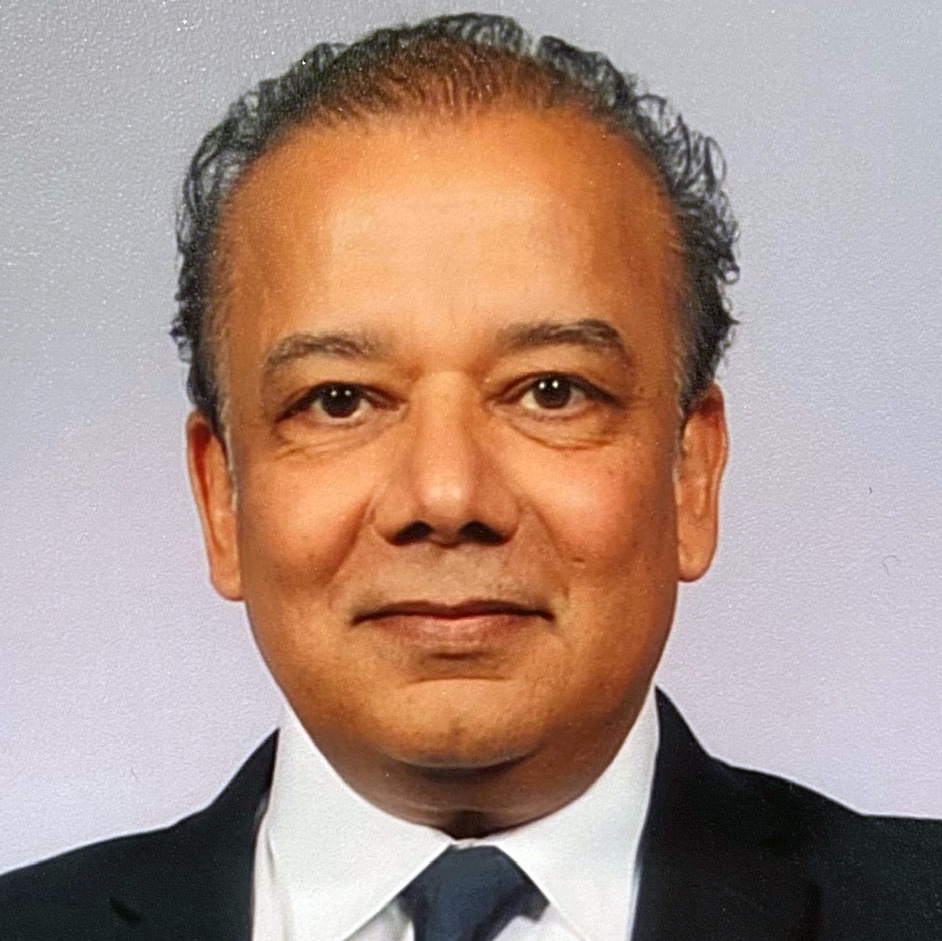
Aamir Ghauri
Aamir Ghauri is the Resident Editor of The News International in Islamabad since December 2017. He founded the South Asia Future Forum (SAFF) in London in 2016, engaging experts on South Asia’s issues. Previously, he worked as Political Editor and Program Host for ARY News, covering stories globally. He launched and edited ‘The Asian Journal’ in London in 2009 and joined Dunya TV as Director of News & Current Affairs in 2008. Ghauri led Geo TV’s European news operations and has extensive experience with Pakistani and international media, including the BBC. He holds an MSc in International Politics from SOAS, University of London, and has practised law in Pakistan. Ghauri is a respected political commentator and author of ‘The Divine Destruction’, a commentary on the 2005 South Asian earthquake.

Abid Sial
Dr Abid Sial is a distinguished figure in academic and literary circles, renowned for his roles as a teacher, researcher, critic, translator, and poet. With over two decades of experience in academia, literature, and teaching, he has made significant contributions to these fields.
Dr Sial has authored ten books, including seven on research and criticism, two translations, and a collection of poems. His scholarly work is extensive, with 40 papers published in both domestic and international research journals. He has also presented papers and conducted training workshops at numerous national and international conferences and seminars.
In his teaching career, Dr Sial has instructed MPhil and PhD students for many years. He specializes in teaching Urdu to foreign students and has held teaching positions at The Guangdong University of Foreign Studies in Guangzhou, China, and the National University of Modern Languages, Islamabad. At Guangdong University, he also led the Center for Culture Pakistan.
Currently, Dr Sial is an Associate Professor at the National University of Modern Languages, where he has previously served as the President of the Department of Urdu and the President of the Department of Pakistani Languages.

Abid Suleri
Dr Abid Qaiyum Suleri is the Executive Director of the Sustainable Development Policy Institute (SDPI). He is a distinguished expert in sustainable development, political economy, food security, and climate change. Dr. Suleri has represented Pakistan in various international forums and delegations. He is a member of several influential bodies, including the International Advisory Committee of COP29, the Advisory Council of the Asian Development Bank Institute, and the Pakistan Climate Change Council.
Dr Suleri has also served on the Prime Minister’s Economic Advisory Council and the National Advisory Council of the Planning Commission of Pakistan. His contributions extend to the Board of Directors of the National Disaster Risk Management Fund and the Benazir Income Support Program. He has been involved in various judicial commissions on environmental issues and has played a pivotal role in the Prime Minister’s Agriculture Transformation Plan.
An accomplished writer and speaker, Dr Suleri regularly publishes in academic journals and mainstream media. He holds a PhD in Food Security from the University of Greenwich, UK, and continues to influence policy and development practices both nationally and internationally.
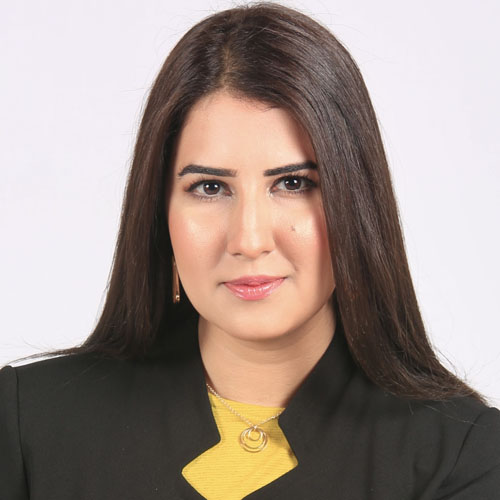
Absa Komal
Absa Komal is a host of a prime time talk show on Dawn TV, bringing 13 years of experience in the media industry in Pakistan. She has spent 7 years with Geo News as a presenter and host of the show ‘Report Card,’ and has several years of experience in radio broadcasting. Absa has covered both national and international elections. She focuses on politics, advocates against religious extremism, and speaks up for women’s rights.
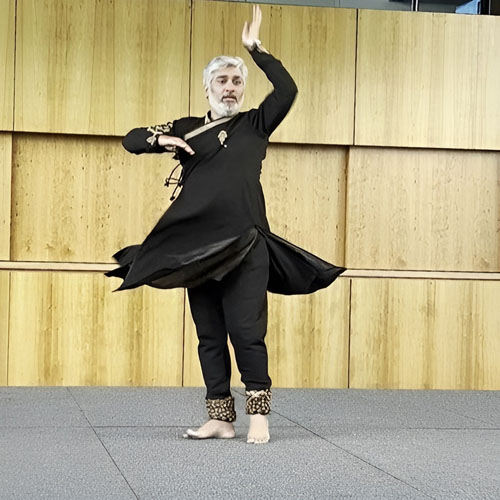
Adnan Jahangir
Adnan Jahangir is a distinguished Kathak dancer and choreographer, known for his contributions to the classical dance form. A graduate in communication design from the National College of Arts, Lahore, he discovered his passion for dance during his academic tenure, establishing a dance society in 2001. Since 2003, Jahangir has been teaching dance at various institutions and has trained extensively with renowned Kathak artists.
He has represented Pakistan on numerous international platforms, performing in countries such as the USA, UK, India, Italy, Turkey, China, Sri Lanka, Qatar, and South Korea. Jahangir’s notable domestic performances include projects with UNESCO and directing productions like ‘Chakkar’ and ‘Goonj’. His work emphasizes the cultural and artistic significance of Kathak, contributing to its global appreciation and recognition. Through his dedication and talent, Adnan Jahangir continues to inspire and promote the rich heritage of Kathak dance.
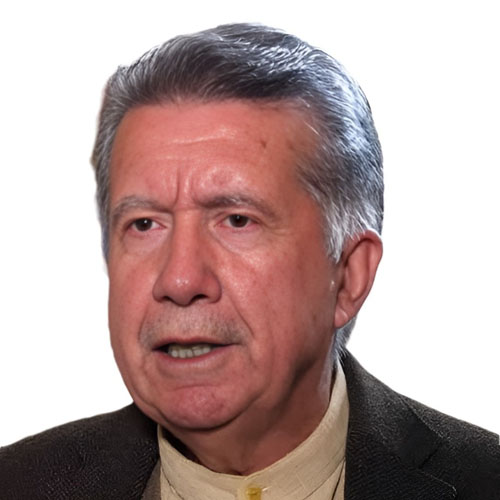
Afrasiab Khattak
Afrasiab Khattak is President Roshaan Democratic Institute. He is a former Senator of Pakistan and has served in several important positions such as Chairperson, Human Rights Commission of Pakistan and Provincial President, Awami National Party (Khyber Pakhtunkhwa). He is an expert of Afghan affairs; analyst of regional security, socio-economic cooperation; and a human rights activist. He is Chairman, Board of Directors Bacha Khan Education Trust Foundation. The Government of Pakistan awarded him Nishan-e-Imtiaz, the highest civil award in 2010 for his services in the parliament.
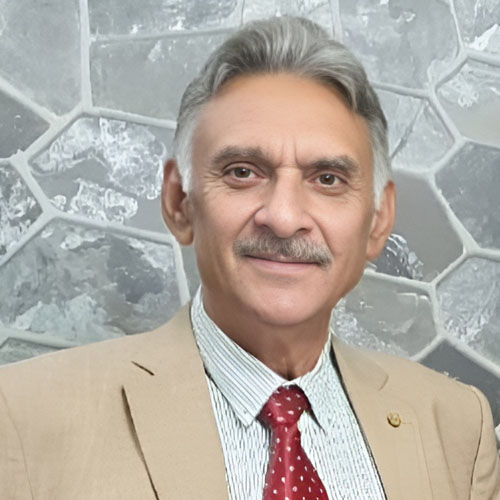
Ahmad Hussain Mujahid
Ahmad Hussain Mujahid is a distinguished poet, critic, and fiction writer. With a literary career spanning over 40 years, he has established a reputable name in both national and international literary circles.
Mujahid is recognized for his contributions to Hindko and Urdu literature, particularly in making folk tales accessible to Urdu readers. He has received several awards, including the Pride of Performance from the President of Pakistan, the key to Muzaffarabad city from the Kashmir Literary Forum, the Saeen Ahmad Ali Award, and the Fakhr-e-Mansehra award from the district administration of Mansehra.
As a poet in Hindko, Gojri, and Urdu, Mujahid has authored books such as ‘Dhund Mein Lipta Jungle,’ ‘Saif-ul-Malook,’ and ‘Ouk Mein Aag,’ which won the Baba Guru Nanak Literary Award. His scholarly work ‘Ramooz-e-Shair’ is well-regarded in the Urdu literary community. His writings cover genres from poetry to critical research.
In his role as a social worker, Mujahid is a Trustee of the Pak-Irish Rehabilitation Center and the Treasurer of the INOR Patients Welfare Society, which supports cancer patients. His collaboration with JICA, Japan, on a selection of poetry for persons with disabilities, exemplifies his unique approach to blending art with social responsibility. He currently serves as a Member of the Copyright Board under the Ministry of Commerce.
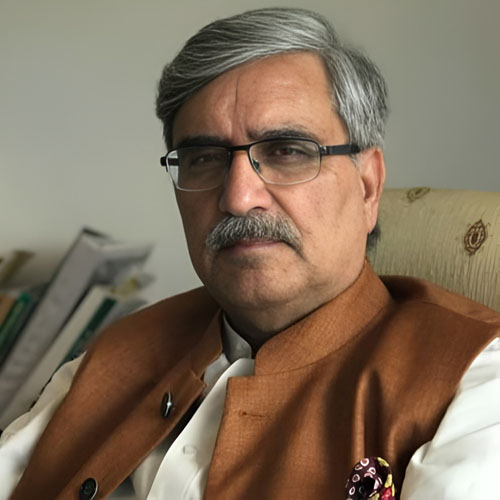
Ahmed Bilal Mehboob
Ahmed Bilal Mehboob is the founder and President of the Pakistan Institute of Legislative Development and Transparency (PILDAT). With over 25 years of experience in senior management and advisory roles, he has significantly contributed to the fields of political development, democratic governance, and public policy. Mehboob holds a B.Sc. in Civil Engineering from the University of Engineering & Technology, Lahore. Before establishing PILDAT in 2002, he worked as an engineer in the Middle East and the USA.
Under his leadership, PILDAT has become a premier think tank focused on strengthening democratic institutions in Pakistan. Mehboob has spearheaded numerous initiatives, including the Youth Parliament Pakistan and various legislative strengthening programs. His expertise encompasses electoral reforms, civil-military relations, and governance assessment.
Mehboob is also a regular contributor to national and international media, providing insights on democratic processes and political reforms.

Ahmer Bilal Soofi
Ahmer Bilal Soofi is an Advocate of the Supreme Court of Pakistan and founder of ABS & Co., one of Pakistan’s leading law firms. He is the founding President of the Research Society of International Law and a Member of the Panel of Eminent Experts of the OIC. He also serves on the Board of the Pakistan Nuclear Society.
In 2013, he was the Federal Minister for Law, Justice & Parliamentary Affairs during the caretaker setup and chaired the Advisory Council of the UN Human Rights Committee in Geneva. He is a member of the ICC International Court (2021-24) and the IDLO’s Board of Advisors, and a trustee of the OIC Arbitration Center.
Mr Soofi has represented Pakistan in international courts, notably winning the RMI case before the ICJ. He advises the Centre of Excellence for International Law at NDU, Islamabad, and lectures at various military and academic institutions.
He founded the Quran Covenant Center to emphasize the sanctity of contracts and international treaties. He was a visiting Professor of International Law at Punjab University for over 10 years and has published over 100 articles and edited two books. He graduated from Government College Lahore and holds an LLB from Punjab University and an LLM from the University of Cambridge, UK.
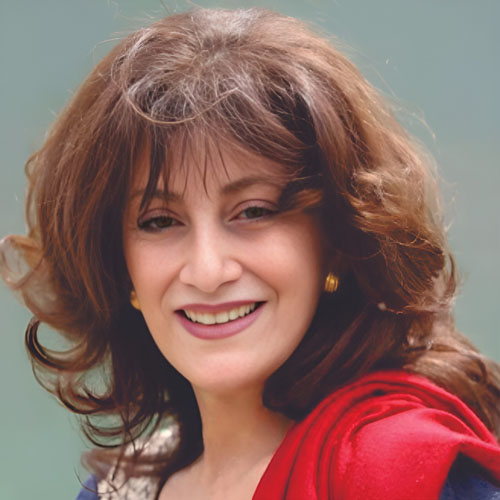
Aisha Khan
Aisha Khan is the Executive Director of the Civil Society Coalition for Climate Change (CSCCC) and CEO of the Mountain and Glacier Protection Organization (MGPO). With over 18 years in development, she has designed and implemented sustainable programs to build resilience in underserved communities. Khan’s work emphasizes inclusive climate action and equity. She has represented Pakistan in various forums and serves on advisory bodies like the Pakistan Climate Change Council and the World Bank’s External Advisory Council.
In 2019, she received the Bright Award for Environmental Sustainability from Stanford University. In 2021, she was honoured with the Rank of Officer in the National Order of Merit by the Government of France. Additionally, she was awarded the Tamgha-i-Imtiaz, Pakistan’s Civil Award for public services, in 2023.
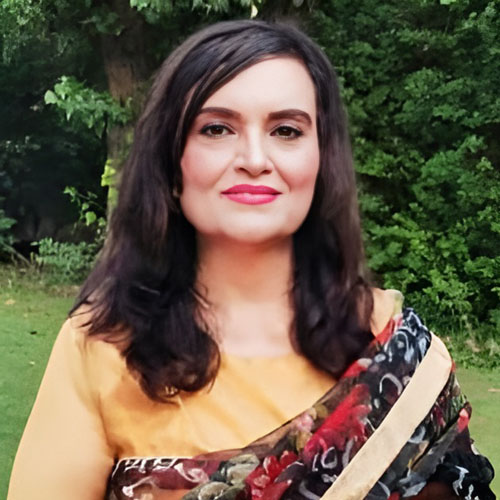
Aisha Masood
Aisha Masood is a multifaceted poet, columnist, anchor, researcher, and afsana-nigar. With nine published books to her name, she has represented her country internationally as both a poet and speaker. Aisha has been honoured with various awards from Pakistan and abroad, including accolades from the US, UK, and Australia. Currently, she serves as the head of the Fact Forum think tank and anchors the show ‘Halqa e Ahbab’ on Roze News.
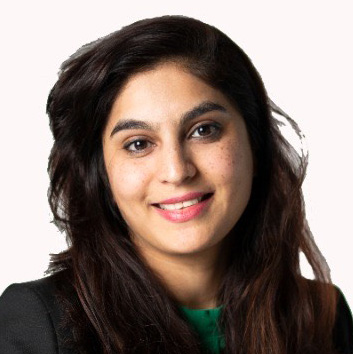
Aisha Sarwari
Aisha Sarwari is the Co-Founder and Owner of the Women’s Advancement Hub and serves as the Senior Director of Public Affairs at a Fortune 500 company. With over 20 years of global experience in communications and sustainability, she has held leadership roles in various sectors. Sarwari has made significant contributions to organizations such as CNN, National Public Radio, the Bill and Melinda Gates Foundation, USAID, and the World Bank.
She is also a published author and an advocate for women’s rights, with her commentary featured in prominent publications like The Economist and The Guardian. Her memoir, ‘Heart Tantrums and Brain Tumors,’ explores her personal struggles with misogyny and systemic abuse, offering a nuanced view of Pakistani feminism. Another notable work is ‘Navigating Pakistani Feminism: Fight by Fight,’ which examines the ongoing challenges and triumphs in the fight for feminist rights in Pakistan.

Akhtar Raza Saleemi
Akhtar Raza Saleemi is a renowned poet, novelist, writer, critic, and editor. He writes in Urdu, Hindko, and Potohari languages. Saleemi began his literary career with poetry, particularly excelling in the genres of Ghazal and Nazm. His notable poetry collections include ‘Ikhtara,’ ‘Irtafa,’ and ‘Khawab Daan’.
In addition to poetry, Saleemi has made significant contributions to Urdu literature through his novels. His first novel, ‘Jaagein Hain Khawab Mein,’ and his second, ‘Jandar,’ have been well-received, with ‘Jandar’ winning the UBL Literary Award for Fiction in 2019. His fiction often blends magic realism with historical elements, focusing on themes like dreams and death.
Saleemi’s work has earned him several accolades, including the Quaid-e-Azam Literary Gold Medal and the Allah Bakhsh Yousfi Award. He currently serves as an editor at the Pakistan Academy of Letters, contributing to various literary magazines.

Akhtar Usman
Akhtar Usman is a renowned poet and critic who writes in English, Persian, Urdu, Potohari, Punjabi, and Hindi. He is revered for his compilations of Urdu poetry, especially Ghazals, Nazms, and Marsiyas. He has been honoured with several awards, including the ‘Ahmad Faraz Lifetime Achievement Award’ and the ‘Khalid Ahmad Award’ for his book ‘Chiraagh Zaar’. Currently, he is working on translations from different languages into Urdu and English, along with his upcoming books based on poetry and criticism. He is considered one of the finest poets of his generation, bridging the gap between traditional and modern styles of writing and influencing more than two generations of young writers and poets.
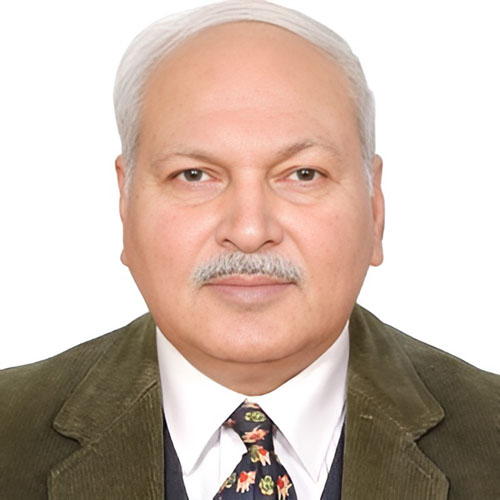
Alamgir Hashmi
Alamgir Hashmi is a distinguished English-language poet and writer. He earned his educational qualifications in Pakistan, Europe, and the United States. Hashmi’s career spans various academic and literary roles, including teaching positions at universities in Pakistan, the United States, and Europe.
Known for his avant-garde style, Hashmi’s poetry has received critical acclaim globally. Of his twelve books of poetry to date, the notable ones include ‘America Is a Punjabi Word,’ ‘My Second in Kentucky,’ ‘This Time in Lahore,’ ‘Sun and Moon and Other Poems,’ and ‘The Shorter Poems 1993-2023.’ His poetry often explores themes of love, cultural identity, and the human experience, blending Eastern and Western literary traditions.
Hashmi has also contributed significantly to literary criticism and scholarship, authoring and editing important works like ‘Pakistani Literature: The Contemporary English Writers,’ ‘Ezra Pound,’ ‘The Worlds of Muslim Imagination,’ and ‘The Commonwealth, Comparative Literature and the World.’ He has edited and advised many international scholarly journals and judged national and international literary prizes. His efforts in promoting comparative literature and fostering cultural understanding have been widely recognized.
Throughout his career, Hashmi has received numerous honours, including the Patras Bokhari Award from the Pakistan Academy of Letters, a Rockefeller Fellowship, and the President of Pakistan’s Award for Pride of Performance (Literature and Literary Criticism). His influence extends beyond poetry, impacting literary studies and cultural discourse across continents.
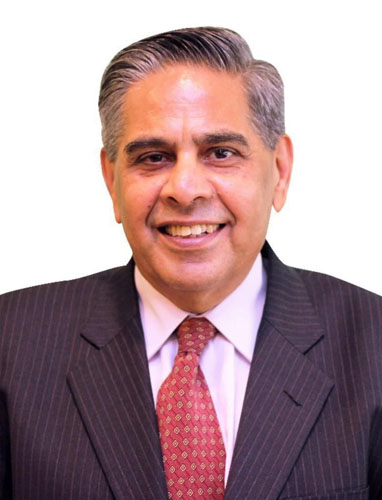
Ali Tauqeer Sheikh
Ali Tauqeer Sheikh is the country’s foremost expert on climate change and sustainable development. He has contributed to the development of climate policies in Pakistan and several other countries in Asia. He is the principal author of several national policies, including the Nationally Determined Contributions, committing Pakistan’s climate actions to the global community. He is also the author of Pakistan’s National Climate Finance Strategy, which sets the direction for Pakistan on how to access climate finances for climate-resilient and low-carbon development. He serves on several national and international committees and boards, including the international board of the Loss and Damage Fund. He writes a regular column for Daily Dawn on issues of climate vulnerability and governance.

Amanda Ingram
Amanda Ingram has over 18 years of dynamic leadership experience in education and cultural relations across South East Asia, Europe, the Americas, the Middle East/North Africa, and now South Asia. She has proven herself as a visionary in building international connections through education. Over the past 14 years, she has excelled in various leadership roles at the British Council, where she has managed teaching centres, assessments and exams, teacher training, and government education programmes.
As Director of Exams in Pakistan, Amanda is driven by the mission: to empower over 180,000 young Pakistanis with access to high-quality, secure UK qualifications that will unlock their potential and shape their futures. Under her leadership, the British Council delivers more than half a million UK qualifications in 37 cities, safeguarding the reputation and integrity of over 50 UK awarding bodies. Amanda’s passion for education has helped her create lasting connections globally and, through her work, has helped millions of young people achieve their dreams.
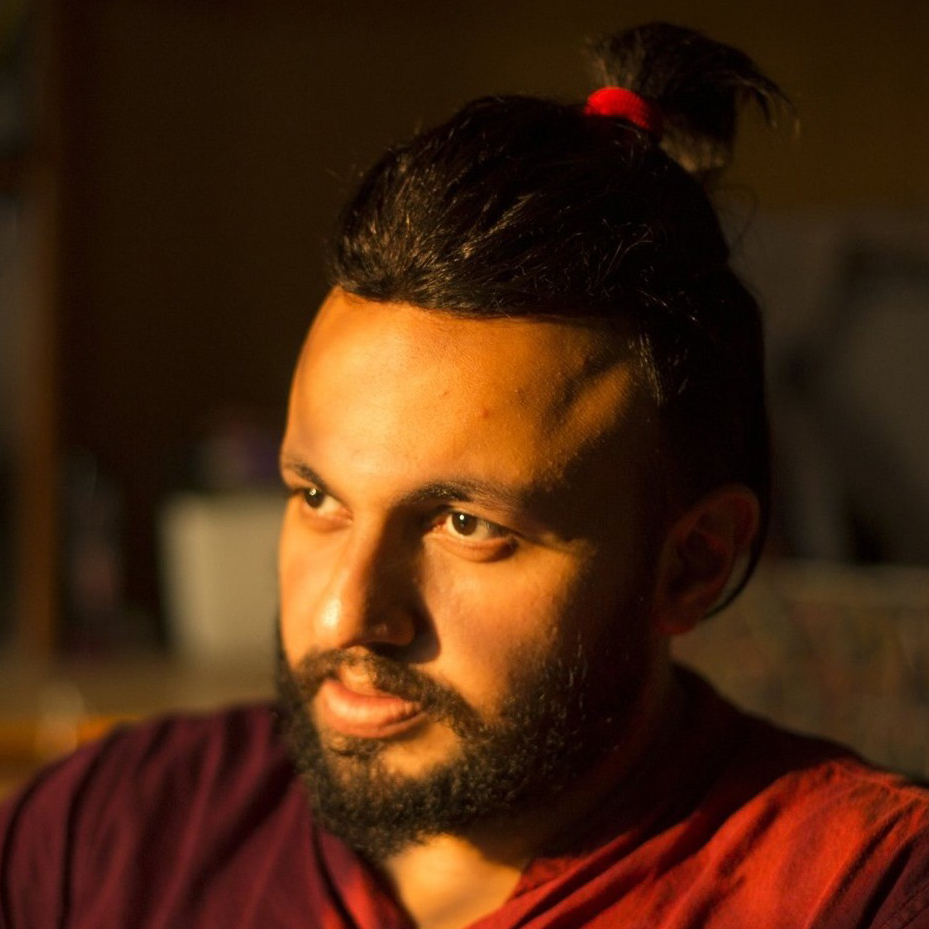
Ammar Aziz
Ammar Aziz is a poet, literary translator, and multi-award-winning filmmaker from Lahore. His poetry has been published in several leading literary journals and widely anthologized, including its latest inclusion in Penguin’s ‘Greening the Earth’ and ‘The Red River Book of Erotic Poetry.’ He has participated in various international literature festivals, and his verse has been translated into languages such as Russian, Spanish, Bangla, Tamil, Kannada, and Urdu. His debut collection of poetry, titled ‘The Missing Prayer,’ is scheduled for simultaneous publication in Pakistan and India in 2024. As a filmmaker, he has screened his work in over a hundred countries, including his feature-length documentary films ‘A Walnut Tree’ and ‘Discount Workers.’ These films have received numerous accolades, such as the FIPRESCI award, Berlinale Footprints, the Grand Prix at the Moscow International Film Festival, the Ram Bahadur Award at Film Southasia, and the Jean Rouch International Award, among others. His films have been broadcast on Al Jazeera, and various media outlets, including Deutsche Welle, The Hindu, Scroll, Indian Express, The Christian Science Monitor, Dawn, The Times of India, Insa Italy, and Arab News, have covered his work. Currently, he is working on the first official English translation of the Urdu poet Jaun Elia.
Anjum Halai
Anjum Halai has a long standing and international experience in higher education especially in low-income and middle-income countries like Pakistan and those in East Africa. She obtained her doctoral degree from Oxford University UK. She was an adjunct professor at the University of Alberta Canada (2011-2016) and a research fellow at the Centre for International Education and Development, University of Sussex UK.
Her research interests are in social justice issues in education. She has published widely in the area of gender and education. She led the task force at her University to develop a policy on awareness and prevention of gender-based harassment. She is a member of the Women’s Leadership Academy at the Aga Khan University (AKU).
Anjum Halai plays an active role on several international forums to enable equitable participation in education of youth, especially young women from disadvantaged contexts. These forums include the International Commission of Mathematical Instruction- Berlin and the World Academy of Art and Science.
She is the author of the book ‘Teaching and Teacher Education in Pakistan’ recently published by the Oxford University Press and is a member of the National Accreditation Council for Teacher Education, the highest national body on teacher education in the country.
As a founding dean (2018-22) Anjum Halai led the development of AKU’s Faculty of Arts and Sciences. Currently she is serving as Professor of Education and Vice Provost at AKU.
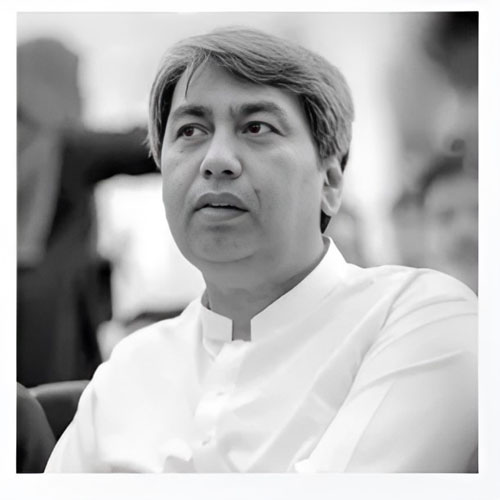
Anjum Saleemi
Anjum Saleemi, a renowned poet in Urdu and Punjabi, radio anchor, and peace activist, has significantly shaped Faisalabad’s literary and cultural scene for over three decades. He co-founded Lyallpur Tea House to foster literary activities and provide a safe space for artists. Born in 1963 in Faisalabad to a family that migrated from Jalandhar during the Partition, Saleemi’s early years were marked by solitude and a deep love for books, influenced by his Burmese maternal grandmother.
Saleemi began writing at a young age, with his first Punjabi poetry book, ‘Sukkay Athru’, published in his teens. His acclaimed work, ‘Santaap’ (1996), earned numerous literary awards. He has also published two Urdu poetry books, exploring and innovating traditional genres.
In addition to his literary work, Saleemi runs Hamkhial Publications, which has released over 400 literary works. He has been active in the Progressive Writers Association, Faisalabad, for the past five years, mentoring young writers and fostering a literary community.
Beyond literature, Saleemi has engaged in political activism, served as the secretary (culture) of the PPP, and launched a street theatre group. His visits to East Punjab and interactions with Indian literary figures have enriched his experiences, which he plans to document.
Saleemi’s poetry often addresses socio-political norms and taboo subjects, reflecting his commitment to human equality and freedom of thought.
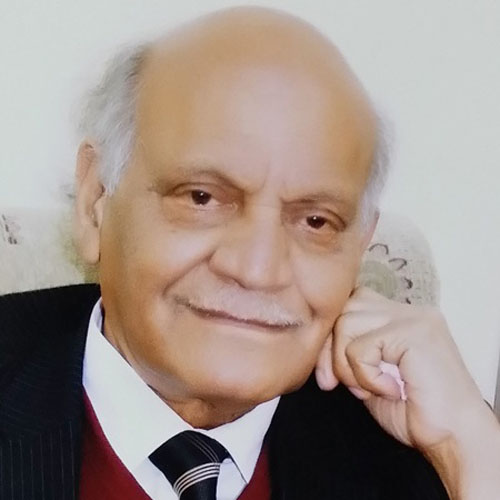
Anwar Masood
Anwar Masood is a Pakistani poet and educationist celebrated for his humorous poetry. While his repertoire encompasses various genres, he is proficient in writing in Punjabi, Urdu, and Persian. In recognition of his contributions, he was honoured with the Hilal-e-Imtiaz in 2023 and the Pride of Performance in 1999.
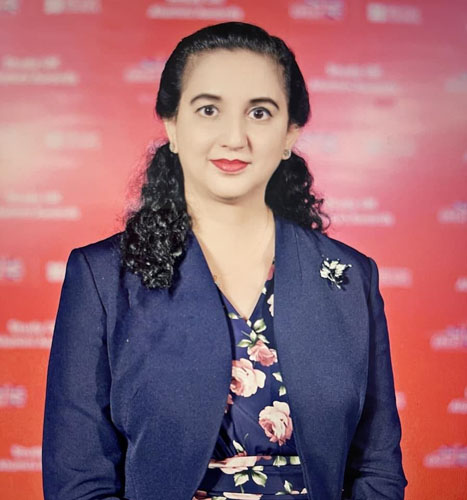
Aroosa Kanwal
Aroosa Kanwal is a professor in the Department of English, Quaid-i-Azam University. She holds a PhD in English from Lancaster University, UK. She held a postdoctoral fellowship at Lancaster University, UK (2018-2020). She is the author of ‘Rehumanizing Muslim Subjectivities: Postcolonial Geographies, Postcolonial Ethics’ (Routledge 2024), ‘Contemporary Pakistani Speculative Fiction and the Global Imaginary: Democratizing Human Futures’ (Routledge 2024), ‘The Routledge Companion to Pakistani Anglophone Writing’ (Routledge, 2019), and ‘Rethinking Identities in Contemporary Pakistani Fiction: Beyond 9/11’ (Palgrave, 2015). She is the Co-investigator of the UK’s AHRC-funded ‘Muslim Women’s Popular Genre’ project (2021-2024). She has won the UK Alumni Professional Achievement Award in 2018, the Karachi Literature Festival Award for the best non-fiction book of the year in 2015, and QAU’s ‘Best Performance Award’ in 2023.

Arshad Saeed Husain
Arshad Saeed Husain has been heading Oxford University Press, Pakistan since February 2018. Oxford University Press is a department of the University of Oxford and is committed to the dissemination of knowledge by publishing works that further research, scholarship, and education.
Arshad is a seasoned corporate executive with over 30 years of broad-based commercial experience with leading multinational companies. Prior to joining OUP, Arshad served as the Managing Director of Abbott Laboratories Pakistan Limited. Earlier, he was also associated with Syngenta Pakistan Limited as Managing Director and with PT Syngenta, Indonesia as President Director.
Arshad has also served as the President of the American Business Council and as Chairman of the Pharma Bureau of the OICCI. He was also a founding member of the Swiss Business Council and Chairman of CropLife Pakistan.
Arshad is an alumnus of Aitchison College and the London School of Economics & Political Science, where he specialized in International Trade & Development.

Arshad Waheed
Arshad Waheed is a novelist and translator based in Islamabad. He writes in both English and Urdu. His first novel, ‘Gumaan’, was published in 1995, and his latest novel, ‘Other Days’, was published in 2021. He translated Gabriel Garcia Marquez’s novel ‘Love in the Time of Cholera’ into Urdu as ‘Waba Ke Dinon Mein Mohabbat’. He also translated Milan Kundera’s ‘Immortality’ into Urdu as ‘Baqa e Dawam’ and ‘The Art of the Novel’ as ‘Novel ka Fun’. His latest novel, ‘Other Days’ has been awarded the Patras Bukhari Award for the best English novel (2021) by the Pakistan Academy of Letters.
He holds a master’s degree in ‘Social Policy in Developing Countries’ from the London School of Economics’, and a fellowship on ‘Governance and Human Rights from Birmingham University UK. He is the Director of the Institute of Social Policy in Islamabad and works on social policy, human rights, and development issues with multi- and bilateral development organizations, both nationally and internationally. He has contributed to national and regional research projects on various subjects related to poverty and vulnerability, indigenous people, and human rights. Additionally, he writes on social and literary issues in various newspapers and journals. Currently, he is hosting a literary programme ‘Art with World’ on PTV World.
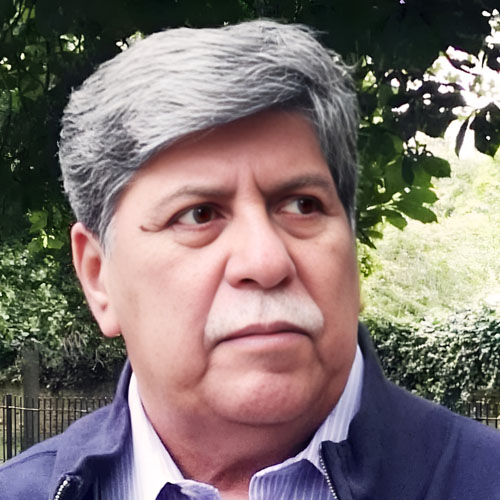
Asghar Nadeem Syed
Asghar Nadeem Syed is a renowned playwright, poet, novelist, and teacher of film and theatre. He completed his master’s degree in Urdu from the University of Punjab, Lahore, and earned his PhD from Bahauddin Zakariya University, Multan. Syed has made significant contributions to Pakistani television, with popular dramas such as ‘Chand Grehan,’ ‘Nijaat,’ ‘Ghulam Gardish,’ and ‘Piyaas.’
He is the author of ‘Tooti Hui Tanab Udhar’ (2019) and has recently published a novel titled ‘Dasht-e-Imkaan.’
Throughout his career, Syed has received numerous accolades, including the Pride of Performance Award by the President of Pakistan in 2006 and the Best Writer Nigar Award for his drama ‘Pyas’ in 1989. He has also served in various academic roles, including as head of the Department of Television, Film, and Theatre at Beaconhouse National University in Lahore. Currently, he is the Dean of Languages at the University of Lahore (UOL).
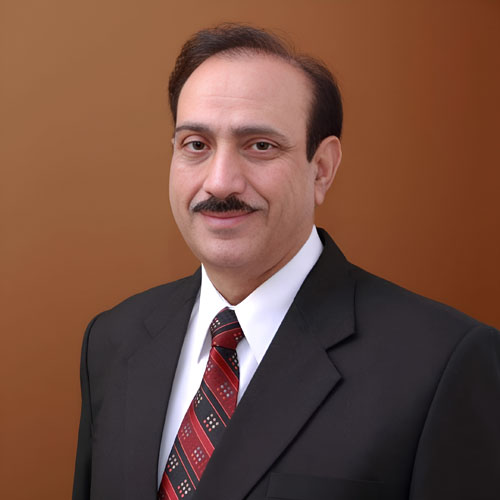
Ashfaq Hussain
Ashfaq Hussain is a renowned Canadian-Pakistani poet and writer, considered a pioneer of Urdu literary activities in Canada. He published the acclaimed monthly literary journal Urdu International under the guidance of Faiz Ahmed Faiz. Currently, he is the Associate Editor of a children’s book series, a joint project by the Multicultural Department of the Government of Canada and the Urdu Chair of McGill University, aimed at preparing Urdu reading and writing materials for Canadian students and a teaching manual for Urdu teachers.
In 2011, he received the prestigious President of Pakistan’s Pride of Performance Award. His notable publications include ‘Aitabar’ (1979), ‘Aashian Gum Karda’ (2009), and ‘Mein Gaya Waqt Naheen Hoon’ (2010).
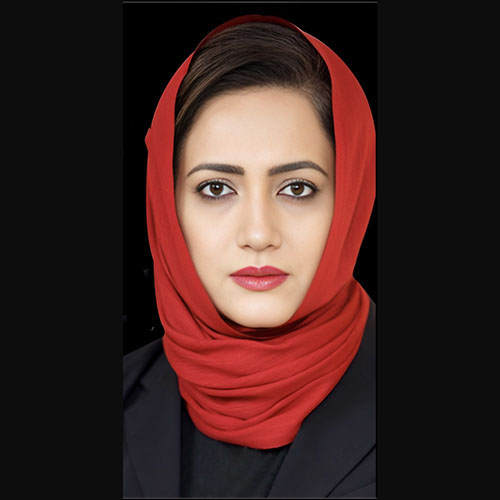
Asma Shirazi
Asma Shirazi is a distinguished Pakistani journalist, senior anchor-person, and political commentator. She holds a postgraduate degree in Political Science from the University of the Punjab. Shirazi began her career in journalism with Pakistan Television (PTV) in 2000 and later joined Geo News in 2002. Over the years, she has worked with several major Pakistani news channels, including ARY News, Samaa TV, Dawn News, and Hum News.
Shirazi made history as Pakistan’s first female war correspondent, reporting from the 2006 Lebanon War and the Pakistan-Afghanistan border in 2009. She is known for her fearless and ethical journalism, which earned her the prestigious Peter Mackler Award for Courageous and Ethical Journalism in 2014. Currently, she hosts a primetime current affairs show on Hum News.
Throughout her career, Shirazi has covered significant events such as the 2005 Kashmir earthquake, Taliban violence, and the state of emergency declared by General Pervez Musharraf in 2007. Her work has been recognized for its comprehensive and unbiased reporting, making her a respected figure in Pakistani journalism.

Athar Abbas
Athar Abbas served in the Pakistan Army from 1976 to 2012, retiring at the rank of Major General. He has been a faculty member at both the Staff College and Defence University. Before retiring, he held the position of Chief Military Spokesperson and Director General of ISPR. He delivers lectures on national security, counter-terrorism and violent extremism, civil-military relations, and the media’s role in conflict. He also comments on these subjects in national and international publications. An active participant in Pakistan-India Track-II diplomacy, his last assignment was as Pakistan’s Ambassador to Ukraine.
Athar Tahir
M. Athar Tahir is a Lahore-based English language poet and a retired civil servant. Thrice the recipient of the Patras Bokhari Award, the highest National Prize for Literature in English, he is a poet, essayist, short story writer, translator and scholar of Punjabi texts, as well as a calligrapher-artist, and art critic and art historian. Tahir has published over twenty books, including several volumes of poetry and essays, such as ‘A Certain Season’ and ‘Body Loom’. His latest book, ‘Telling Twilight’, adds to his impressive body of work. His poems, also translated into Italian, Urdu, and Chinese, have been set as text for Secondary Schools and for the Cambridge O Level Syllabus, and have also been included in several OUP anthologies and in ‘Language for a New Century’ (W.W. Norton & Co., USA). He is the Founder-Director of the International Centre for Pakistani Writing in English (ICPWE) at Kinnaird College, Lahore. He has been awarded the Tamgha-i Imtiaz (1998) and the Sitara-i Imtiaz (2009) for his works.
Awais Khan
Awais Khan is an author and creative writing instructor based in Lahore, Pakistan. He graduated from the University of Western Ontario and Durham University, and studied Creative Writing at the Faber Academy in London. He is the author of novels such as In the Company of Strangers and No Honour. Awais founded The Writing Institute, an online creative writing school. His work often explores themes of social justice, identity, and cultural heritage. Awais’s contributions to literature and education have made him a prominent figure in the literary community.
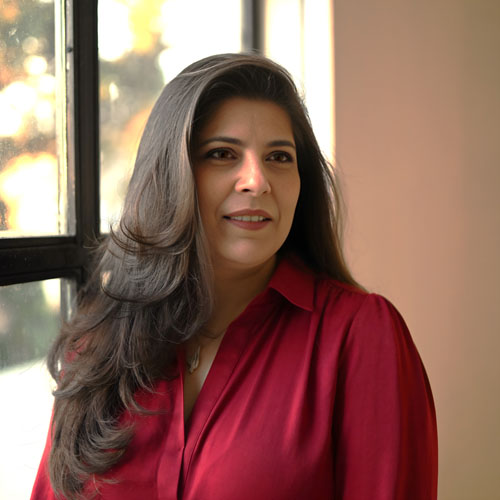
Ayesha Husain
Ayesha Husain has had a long career as an educationist. She holds a Master’s degree in English Literature and an MPhil in Educational Leadership and School Improvement from the University of Cambridge. A Chevening and Cambridge Trust scholar, Ayesha enjoys exploring new cuisines, music, and travelling the world. She lives in Lahore with her husband, three children, and their Labrador.
Ayesha Husain’s debut novel, ’What More Could She Possibly Want?,’ tells the tale of a woman struggling to balance her inner and outer worlds as she finds herself increasingly trapped between the demands of society and tradition on one hand, and her own individuality and desires on the other.
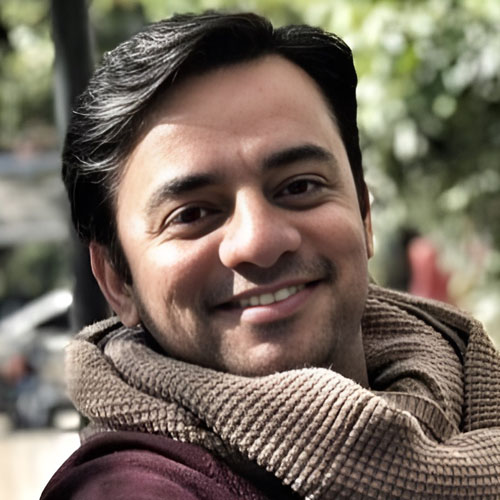
Azfar Jafri
Azfar Jafri is a Pakistani film director, screenwriter, actor, and VFX artist. He gained recognition with his independent film ‘Siyaah’, which earned a nomination for the ARY Film Award for Best Director. Jafri has directed several films, including ‘Janaan’, ‘Parchi’, and ‘Sherdil’. He also served as the head of animation for the animated film’ Allahyar and the Legend of Markhor’. Jafri’s latest film, ‘Umro Ayyar—A New Beginning’, is a sci-fi fantasy based on the classical Urdu-Persian character Umro Ayyar from ‘Hamzanama’.
Baela Raza Jamil
The CEO of Idara-e-Taleem-o-Aagahi (ITA); the founder of the Children’s and Teachers Literature Festivals, and the managing trustee of the Sanjan Nagar Public Education Trust (SNPET). Baela is on the board of the Punjab Social Protection Authority (PSPA); member, Platform for Girls Education–Foreign and Commonwealth Office (FCO), UK; Commissioner at the International Commission on Financing Global Education Opportunity (Education Commission) chaired by Gordon Brown; Director, Asia Hub, the Education Commission on Workforce Initiative; Global Business Coalition for Education(GBC Ed); chair, Global Alliance to Monitor Learning–UNESCO Institute of Statistics (UIS); and member, People’s Action for Learning Network (PAL Network).
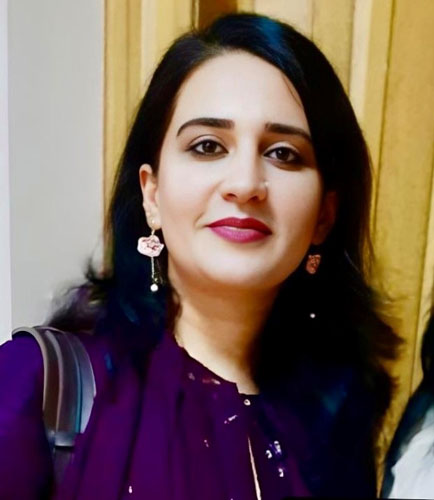
Bi Bi Ameena
Bi Bi Ameena currently serves as an Assistant Professor in Urdu at the International Islamic University, Islamabad. She has sixteen years of teaching and research experience and has presented papers at both national and international conferences. She has contributed seventeen research articles to renowned journals and serves on the review board of various national research journals. Ameena is a sub-editor for ‘Me’yar’, the research journal.
Ameena played a vital role in reviewing the syllabus and curriculum of the USAID-funded Pakistan Reading Project as a subject expert. She has also developed the syllabus and curriculum for Urdu language and linguistics at the International Islamic University, Islamabad.
Furthermore, she is the author of four books: ‘Khalida Hussain: Shakhsiat aur Fun’ (2017), ‘Urdu Lughat (Tareekhi Usool Per): Tehqeeqi aur Tanqeedi Mutalia’ (2020), ‘Yasmeen Hameed: Shakhsiat aur Fun’ (2024) and is one of the co-authors of ‘Lisaniyat: Aik Jame’ Ta’aruf’ (2022). Her book ‘Urdu Lughat (Tareekhi Usool Per): Tehqeeqi aur Tanqeedi Mutalia’ received the prestigious 2020 Baba-i-Urdu Maulvi Abdul Haq Award for research and criticism from the Pakistan Academy of Letters.
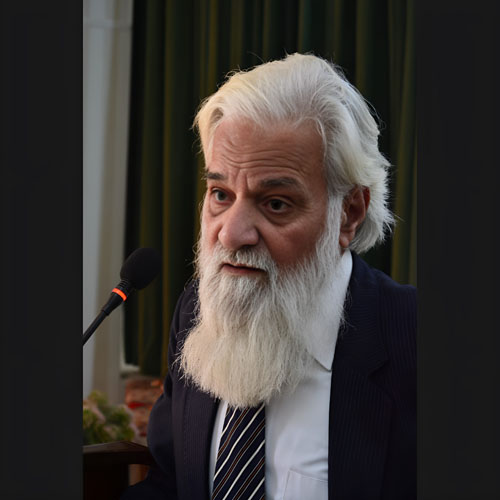
Ehsan Akbar
Dr Ehsan Akbar is a Lahore-based poet and prose writer in Urdu and an academic. With a PhD from Punjab University, he has taught Urdu at various colleges for thirty-nine years. He teaches Iqbal Studies at master’s level, as well as teaching at undergraduate level. A recipient of several literary awards, including Pride of Performance in 2014 and the International Ahmed Nadeem Qasmi Award in 2002, he has published five books, including both verse and prose.
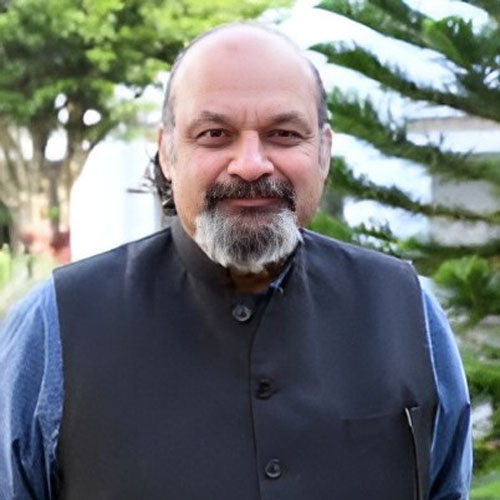
Faisal Bari
Dr Faisal Bari is an economist with over twenty-five years of research and teaching experience in the areas of economics of education, philosophy of education, social protection, industrial organization, microeconomics, game theory, and economic development. He is an associate professor of economics and education (joint appointment) at the Lahore University of Management Sciences (LUMS), Lahore, Pakistan.
He served as the Dean of the School of Education at LUMS from 2020 to 2023. Currently, he is the CEO and Senior Research Fellow at the Institute of Development and Economic Alternatives (IDEAS) since January 2024. Prior to this, he held the position of CEO at IDEAS from 2015 to 2020, was the Executive Director of the Mahbub ul Haq Human Development Centre from 2004 to 2006, and served as a Visiting Assistant Professor of Economics at Yale University, New Haven, from 2000 to 2001.
A Rhodes Scholar (Pakistan-1988), Dr. Bari has a BA (Honours) from Oxford and a doctorate from McGill University. His research has been published in numerous journals and books. He is a regular columnist for the daily Dawn, Pakistan. He is the author of the book ’Educational Conundrums of Pakistan’ (Aks Publications, 2024).

Faisal Mushtaq
Dr Chaudhry Faisal Mushtaq, TI, is a prominent Pakistani academician and social entrepreneur. He is the Founder and CEO of Roots Millennium Education Group and the Millennium Institute of Technology and Entrepreneurship (MiTE). Awarded the National Civil Award, Tamgha-i-Imtiaz, in 2013, he has significantly impacted education and social welfare.
Dr Mushtaq has served as the Former Education Minister in Punjab and was recognized among the 500 most influential Muslims globally. He received an Honorary Doctorate of Education from the University of Hertfordshire, UK, in 2021.
Through his non-profit, Change in Education Foundation, he has transformed over 200 government schools, aligning with the UN’s Sustainable Development Goals (SDGs). He also serves on various boards, including the National Curriculum Council and WWF Pakistan.
His academic background includes studies at the University of London, University of Salford, and National Defense University in Islamabad. Dr. Mushtaq’s leadership continues to inspire and empower youth, shaping Pakistan’s educational and social development.
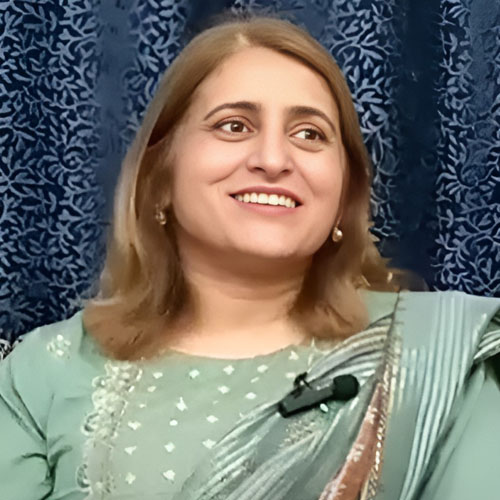
Fakhra Noreen
Dr Fakhra Noreen is a dedicated educator and skilled translator with a passion for promoting education and knowledge. She holds a PhD in Urdu from NUML Islamabad, specializing in the translation of literary texts from English to Urdu. Additionally, she has a Master’s degree in Urdu and English from Punjab University, Lahore.
Dr Noreen has been a Lecturer in Urdu at the Government College of Women, Rawalpindi, since 2009, where she also manages various co-curricular activities. Her teaching career began in 2002, and she has since taught at several institutions, including Fauji Foundation Model School and Rabia Model School.
An active contributor to the field of translation, Dr Noreen works with Idara Tehqeeqat-e-Urdu and the Pakistan Institute for Peace Studies. She has collaborated on numerous translation projects with Dr Abid Sayyal and serves as an Assistant Editor for the journal Risalah Tehqeeqat-e-Urdu.
Dr Noreen’s work has been recognized by various academic institutions, and she has published articles in university research magazines. Fluent in Urdu, English, and Punjabi, she continues to inspire students and contribute to the literary community through her teaching and translation work.
Farhatullah Babar
Farhatullah Babar transitioned from journalism into politics and human rights activism, serving as the Secretary General of the PPP, as a senator from Khyber Pakhtunkhwa for three terms, and as the editor of the English daily Frontier Post. Currently, he is the President of the Human Rights Cell of the Pakistan People’s Party and a Council member of the Human Rights Commission of Pakistan (HRCP). A civil engineer by profession, he served as an Engineering Manager in a multinational company in Saudi Arabia.
He also served as Spokesperson and Speech Writer to Prime Minister Shaheed Mohtarma Benazir Bhutto and as Spokesperson to President Asif Ali Zardari (2008-2013). He was the chair of the Special Senate Committee on Right to Information (RTI) and the chairman of the Parliamentary Commission on the South Punjab province.
He served on the Senates of the University of Peshawar and the Pakistan Institute of Development Economics (PIDE) Islamabad, as well as on the Syndicate of Quaid-i-Azam University Islamabad. A Life Member of the Pakistan Academy of Letters, he is a recipient of the civil award Hilal-i-Imtiaz.
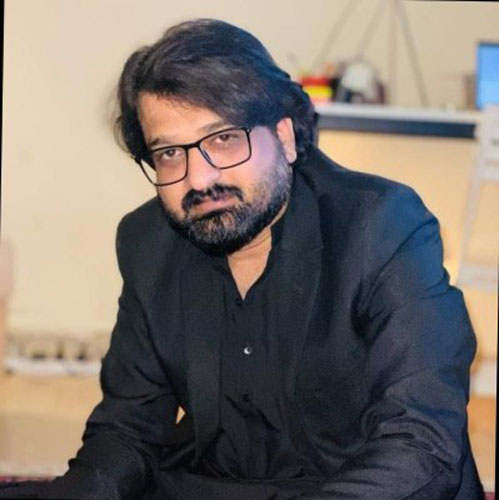
Farnood Alam
Farnood Alam is an Islamabad-based journalist and columnist who has written for major publications in Pakistan on various topics, including education, environment, health, politics, and human rights. He worked with the International Committee of the Red Cross as a media and content manager for twelve years. He led a training and networking project titled ‘Humanitarian Reporting Initiative’ in partnership with the Centre of Excellence in Journalism at IBA. Since 2017, the project has engaged over 400 journalists from across Pakistan. Farnood Alam is a well-qualified consultant with over ten years of experience in designing, supervising, and developing training programs. He currently contributes as a columnist, blogger, and analyst to the Urdu service of German broadcaster DW and the leading newspaper Daily Jang Pakistan. He also works as the Director at Cyclorama Media, an Islamabad-based production house. Farnood Alam appears as a regular commentator and co-host on Dr Mehrub Moiz Awan’s ‘Unfiltered Pakistan’ podcast exploring Pakistan’s sociopolitical landscape.

Farrukh Yar
Farrukh Yar is a prominent figure in modern Urdu poetry with a 30-year literary career. Holding an LLB and an MA in history from Punjab University, Farrukh Yar is a prolific writer with five poetry collections and two research books, earning accolades for his work, including the prestigious UBL Excellence Literary Award in 2017 & KLF Getz Pharma Prize 2023. Beyond his literary pursuits, Farrukh Yar is a connoisseur of South Asian classical music, literature, and mysticism and has contributed significantly to the study of South Asian culture, notably with his recent work, ‘Ishq Nama Shah Hussain.’
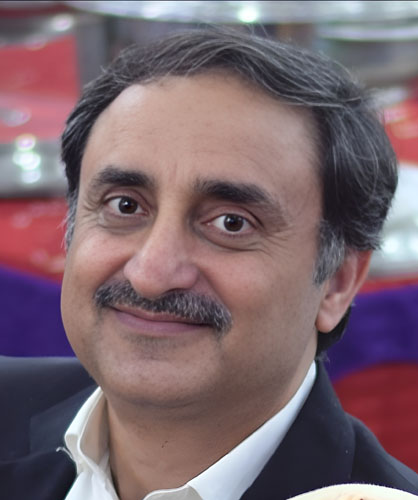
Hamid Ateeq Sarwar
Hamid Atiq Sarwar, a graduate of King Edward Medical College, entered government service through a competitive exam. He holds an MS in Economics, an MBA from LUMS, and a Master’s in White-Collar Crime Laws from Australia. He has taught Economics and Decision Making at the Civil Services Academy for eight years and Tax Laws and Auditing at the Tax Academy for nearly 26 years.
In poetry, he writes both humorous and serious works, as well as translations. His books include ‘Utharveen Ka Chaand’ (2020), a compilation of light-hearted poetry, and ‘Meray Jinn Nikal Gaey’, a compilation of humorous poetry. His forthcoming book, ‘Saaz-e-Kun aur Saut-e-Qayamat ke Darmiyan’, contains serious poetry and translations.
Due to his job and work commitments, he rarely participates in poetry recitals. He has served as Chief Commissioner of Rawalpindi, Member of Policy at the Federal Board of Revenue (FBR), and Additional Secretary at the Federal Ministry of Industries and Production. He has been actively involved in formulating key national policies and, in recognition of his services, has been awarded the Sitara-e-Imtiaz by the Government of Pakistan.
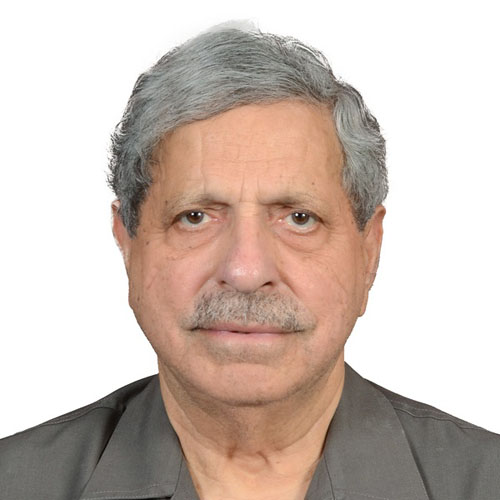
Hamid Khan
Hamid Khan’s professional affiliations include being a member of the Pakistan Bar Council (1990-2015) and holding various leadership roles in the legal community. He served as Vice Chairman of the Pakistan Bar Council (1996-97), Chairman of the Executive Committee of the Pakistan Bar Council (2005), and Chairman of the Legal Education Committee of the Pakistan Bar Council (1995-2008). He has also been President of the Supreme Court Bar Association of Pakistan (2001-2003) and President of the Lahore High Court Bar Association (1992-93).
Throughout his career, Hamid Khan has been a dedicated lawyer, serving as a Senior Advocate at the Supreme Court of Pakistan since November 2001. He has also been a Visiting Lecturer on Constitutional Law, International Law, and Civil Procedure at Punjab University Law College, Lahore, and a Visiting Professor in Comparative Constitutional Law for LL.M. students at the same institution. He has been a Guest Speaker and Lecturer on Constitutional and Administrative Laws at various institutes in Pakistan and served as Head Examiner in Public International Law at the University of the Punjab.
Hamid Khan’s written work includes significant publications such as ’A History of the Judiciary in Pakistan’ (2023), ’Constitutional and Political History of Pakistan’ (4th Edition, 2023), ‘Comparative Constitutional Law’ (2022), ‘Principles of Administrative Law’ (2nd Edition, 2020), and ‘Islamic Law of Inheritance’ (2nd Edition, 2021). He has received several awards for his contributions to the legal field, including the Dorab Patel Award for Rule of Law (2002), the Madar-e-Millat Award (2003), the Distinguished Alumnus Award from the University of Illinois College of Law (2005), and the Human Rights Award by the Human Rights Society of Pakistan (2006).
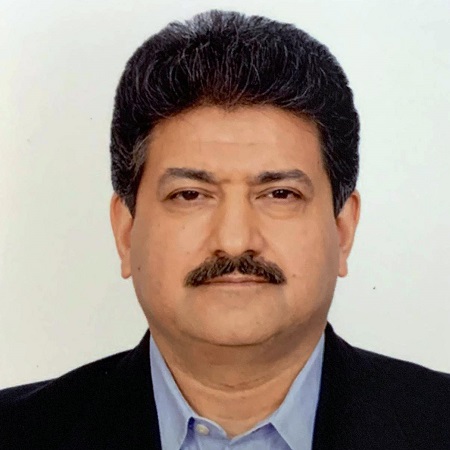
Hamid Mir
Hamid Mir is a journalist and author with a substantial body of work. Throughout his career, Mir has reported on conflicts in several regions, including Afghanistan, Iraq, Syria, Lebanon, Palestine, Chechnya, and Kashmir. Notably, he holds the distinction of being the sole journalist to have conducted an interview with Osama bin Laden following the terrorist attacks on 9/11. Additionally, he has had the privilege of interviewing Nelson Mandela and played a pivotal role in introducing Malala Yousafzai to television audiences in 2009.
Mir has written articles for Pakistani publications and hosted a talk show on GEO TV, a national news channel. He contributes Urdu columns for Daily Jang and English columns for The Washington Post and India Today. He has received recognition from Reporters Without Borders and various awards from organizations like Free Press Unlimited and the SAARC Writers Association.
Despite facing immense challenges, including two assassination attempts, being banned from television on three occasions, and enduring job losses due to his unwavering commitment to press freedom and human rights, Hamid Mir remains a steadfast advocate for these crucial causes. His influence also extends to his role as a member of the Jury for the RSF World Press Freedom Award and the UNESCO/Guillermo Cano World Press Freedom Award.
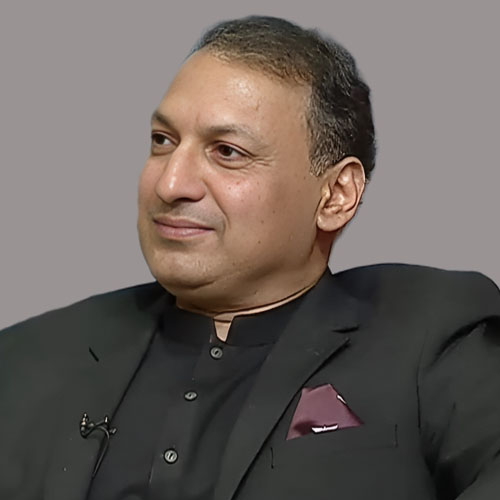
Hammad Husain
Hammad Husain is a distinguished architect and educator with a robust academic and professional background. He holds a Bachelor of Architecture from Middle East Technical University (METU) in Turkey and a Master’s in Project Management from Pakistan. Additionally, he is an ACA Fellow from Japan.
Currently, Hammad serves as the CEO of the Antalya Schools & Colleges Nationwide Franchise System and is the Principal Architect at Hammad Husain Architects in Islamabad. He is also the President of the League of Architects Pakistan (LEAP) and a Technical Reviewer for the Al Fozan Award for Mosque Architecture in Saudi Arabia. Previously, he was the Head of the Department of Architecture & Design at Comsats University, Islamabad, and headed a think tank for Naya Pakistan Housing and Development Authority.
Hammad’s contributions to architecture extend beyond practice; his essays and articles have been featured in newspapers, periodicals, and an international book on architecture. Notably, he was the first regular architecture columnist in Pakistan. He has worked with the Aga Khan Trust for Culture as an editor and has represented Pakistan at various international forums in Europe and Asia.
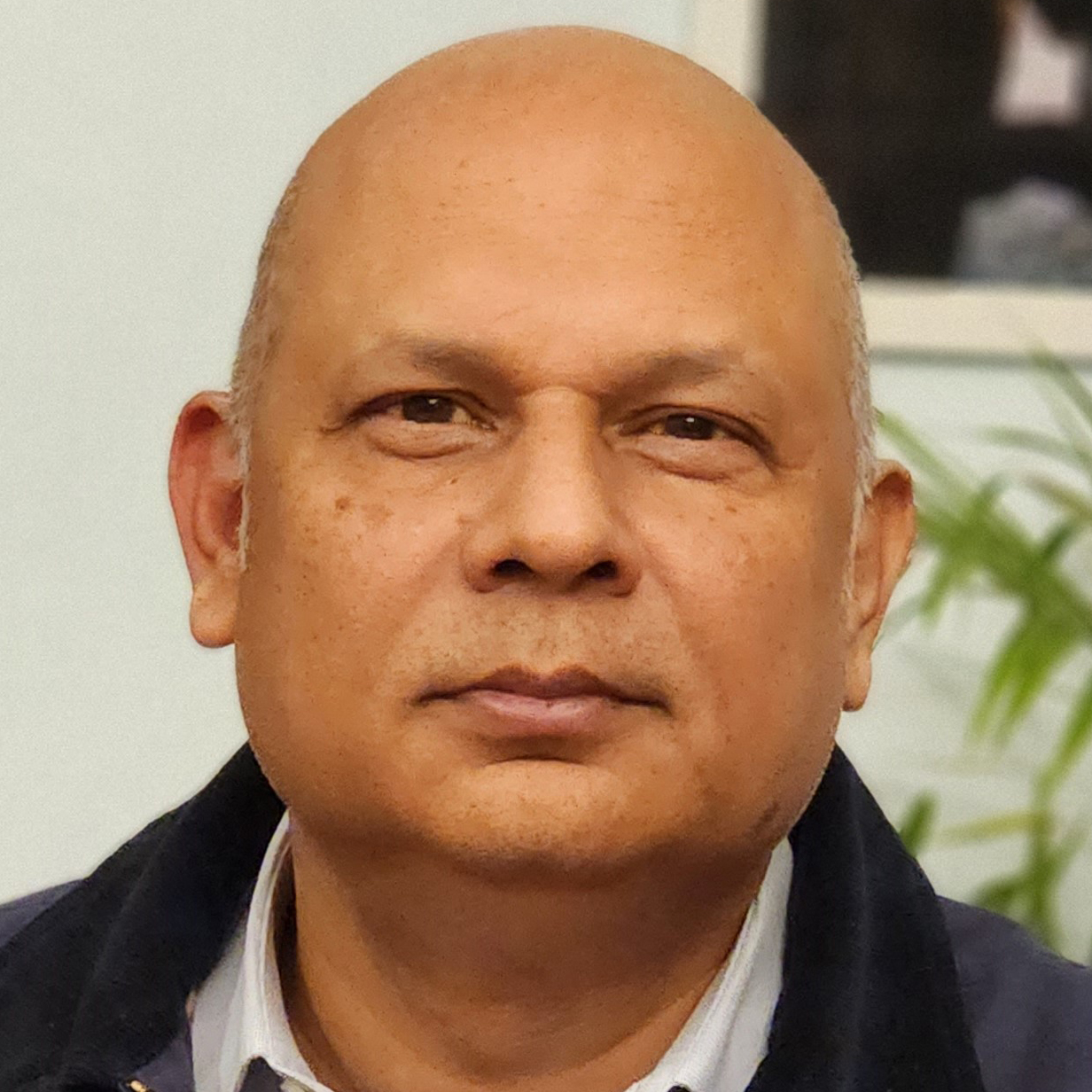
Harris Khalique
Harris Khalique is a poet and author in English, Urdu and Punjabi with ten collections of poetry, two books of nonfiction and several hundred articles, columns and papers published in Pakistan and abroad. He has co-edited a volume of essays and guest-edited a literary journal. Khalique has also been a seasoned broadcaster. His work is composed to music and dance and translated into several international languages besides being anthologised by Oxford University Press, Penguin US, University of Georgia Press, W.W. Norton, Kitaab, Maktaba-e-Daniyal, Folio Books and others. He has delivered keynote addresses and lectures at conferences and universities across many countries. He is a recipient of Pakistan’s prestigious Presidential Pride of Performance Award and the UBL Literary Excellence Award. He is also a University of Iowa Honorary Fellow in Writing. After working closely with labour, community development and other civil rights movements for decades across Pakistan, South Asia and Europe, he now serves as the secretary-general of the independent Human Rights Commission of Pakistan besides managing DARE, an education research programme, run by Oxford Policy Management. Khalique graduated in mechanical engineering from N.E.D. University of Engineering and Technology, Karachi, and earned a master’s degree in development management from the London School of Economics and Political Science.

Haseeb Sultan
Haseeb Sultan is an orthodontist and educationist from Islamabad who has studied creative writing at the University of Iowa. His work has appeared in publications like GQ, Buzzfeed, The Aleph Review, The News, and more. He is a recipient of the Neela Asmaan Residency from Sharmeen Obaid Chinoy Films. Currently, he is working on his practice as an orthodontist during the day and on his art. Follow him on Instagram @haseebsultan_ and Twitter @haseebsultan_.
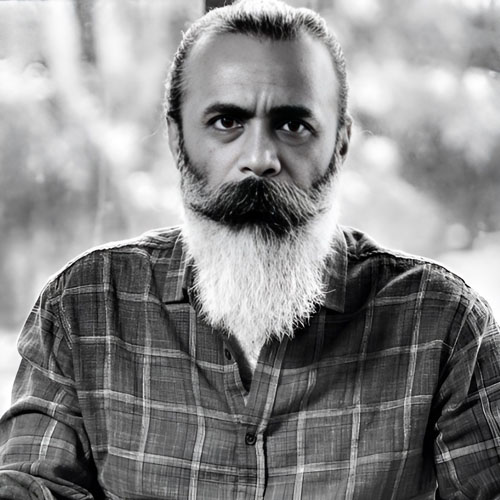
Husnain Jamal
Husnain Jamal, though now a journalist, originally traversed various roles in pharmaceutical marketing before finding his true calling. During this period, he authored two books that garnered significant attention. He first completed a Master’s in Mass Communication, followed by an MBA, but his passion always lay with literature. Twelve years ago, he embarked on a blogging journey, which gradually evolved into vlogging, allowing him to gain substantial experience and continuously explore new horizons.
Husnain has made noteworthy contributions to a range of prominent platforms, including Humsub, BBC Urdu, Daily Dunya, Dawn, Humshehri, Dunya Pakistan, Iwan-e-Urdu Delhi, and Adb-e-Lateef. As one of the founding members of Humsub.com, his work helped shape the platform’s pioneering approach.
Presently, he is associated with Independent Urdu, where he provides editorial guidance, ensuring the highest standards of journalistic integrity. As a regular contributor to the Independent, Husnain focuses on critical issues in arts, culture, and social affairs. His tenure as host of the popular online show Indy3, which explored contemporary matters, further solidified his standing in digital journalism. In addition to his journalistic endeavours, he frequently covers automotive developments in Pakistan, sharing insights through his blogs.
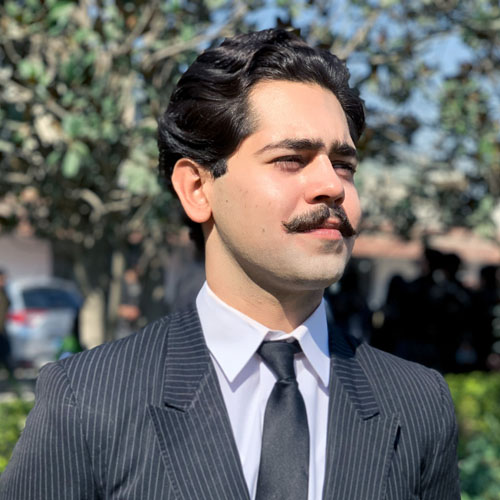
Huzaifa Nizam
Huzaifa Nizam, a young writer and final-year Dentistry student, is dedicated to documenting Pakistan’s lesser-known history, folklore, and culture. An alumnus of Beaconhouse Jamrud Campus, Peshawar, he engages with thousands across multiple platforms, helping Pakistanis connect with their heritage. Originally from the Hindukush mountains and raised in Peshawar, Huzaifa creates captivating social media videos exploring historical events and folklore, aiming to preserve and share these stories for future generations.
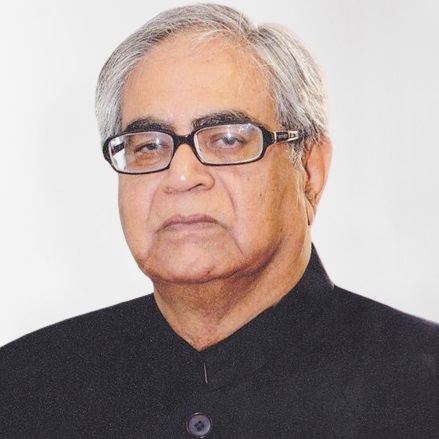
Iftikhar Arif
Iftikhar Arif is a prominent Urdu poet, scholar, and literary personality. Several collections of his poetry have been published, including the English rendition Written in the Season of Fear (OUP, 2003). He has served as the head of the Pakistan Academy of Letters, the National Language Authority, and the National Book Foundation. Additionally, he was President of the ECO Cultural Institute in Tehran, Iran, and the head of the National Language Promotion Department, National History and Literary Heritage Division, Islamabad. He has received numerous awards, including the President’s Pride of Performance Award, Sitara-e-Imtiaz, Hilal-e-Imtiaz, and Nishan-e-Imtiaz. His latest poetry collection is ‘Baagh-i-Gul-i-Surkh’.
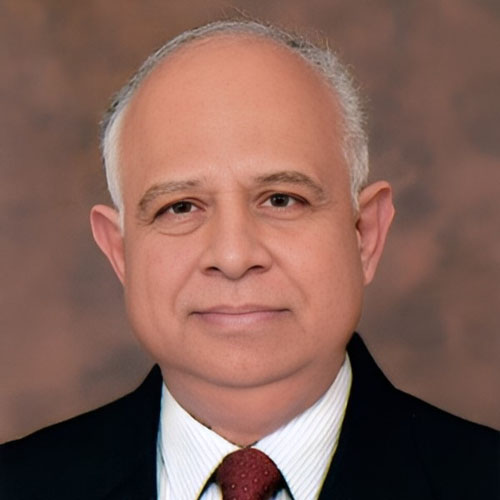
Ikram Sehgal
Ikram Sehgal, the first Pakistani POW to escape from India in 1971, was promoted to Major on 13 December 1971, while commanding a rifle company in the Thar Desert. He is a regular speaker at various defence institutions and international think tanks worldwide.
As Chairman, Ikram Sehgal oversees two major private security companies in the Pathfinder Group’s Security Services Division (SSD) and leading IT firms in the Financial Services and Technology Division (FSTD). VRG, recognized by the World Economic Forum’s Edison Alliance, ranked third globally for digital financial inclusion with nearly 7.5 million Asaan Mobile Accounts (AMA).
For 20 years, Ikram Sehgal has hosted the Pakistan Breakfast at the WEF Annual Meeting in Davos for heads of state and other prominent figures. Formerly Chairman of the Karachi Council of Foreign Affairs (KCFR), he is now its Patron-in-Chief. He serves on WEF’s Board of Partnering Against Corruption Initiative (PACI) and was part of its Global Agenda Council for Counter-Terrorism. He is Co-Chairman of the Pakistan Committee of the Swiss Asian Chamber of Commerce, Geneva, and a Director of the EastWest Institute for over 15 years. He is on the Executive Council of Pakistan Newspapers Editors and Vice Chairman of the Board of Management Quaid-i-Azam House Museum. He served on the Board of Directors of Bank Alfalah for 16 years and was elected Chairman of K-Electric in January 2019. He is also a Director at BAB of IOM, Geneva.
Ikram Sehgal regularly contributes articles to newspapers such as Daily Times, Express Tribune, Daily Express, and others, including South Asian Monitor (Malaysia). He has also written for The Nation, Nawa-i-Waqt, The News, and Daily Jang. Additionally, he frequently appears on television as a defence and security analyst.
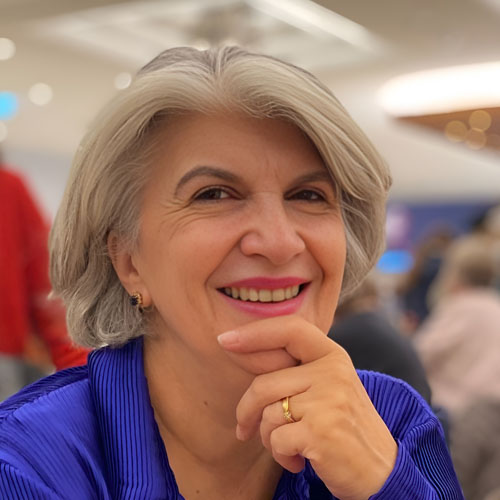
Ilona Yusuf
Ilona Yusuf is a part-time poet, editor, designer, and printmaker. Her poetry was first published in book form in 2001 with ‘Picture This’ by Alhamra Publishing. Since then, her work has appeared in various local and international literary journals, both online and in print, including The Atlanta Review, The Chicago Quarterly Review, Papercuts, The Aleph Review, Sugar Mule, and The Missing Slate.
Throughout her career, she has edited for three literary journals: The Alhamra Literary Review, Vallum Special Issue Pakistan, and, since 2017, she has served as Associate Editor of The Aleph Review, an annual Pakistani art and literature journal that features both local and international writing. Additionally, she has freelanced for several local art and features magazines, writing about art, artists, and writers. Her essays on Pakistani poetry in English have been published primarily in international publications. Her most recent editing project was ‘Poetry in English from Pakistan, A 21st Century Anthology,’ for Alhamra Publishing. Currently, after a long hiatus, she is exploring the combination of text and image to create artist’s books.
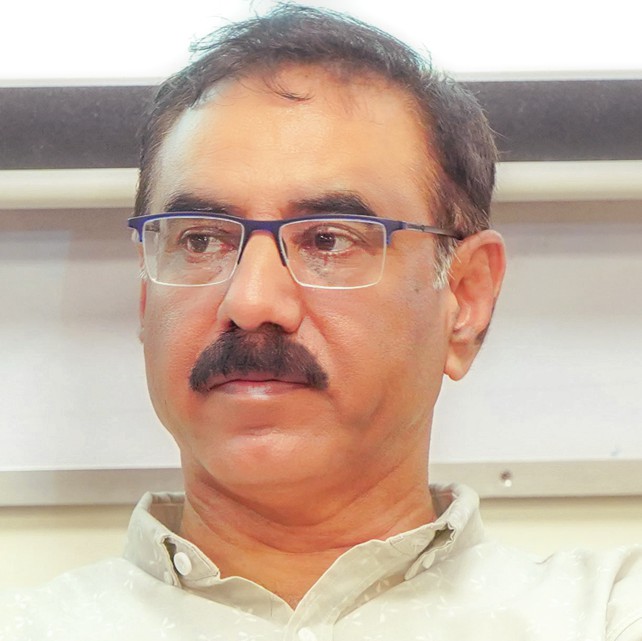
Inaam Nadeem
Inaam Nadeem is a distinguished poet, writer, and translator with an extensive body of work, boasting over a dozen published books. His debut volume of ghazals, Dar-e-Khawab, earned the prestigious Aks-e-Khushbu Poetry Prize in 2003. As a versatile translator, Inaam has rendered several acclaimed works of international fiction into Urdu. His notable translations include Qaidi (Urdu translation of Omar Hamid Shahid’s The Prisoner), Dozakhnama and Aaina Si Zindagi (translations of two novels by Rabisankar Bal), as well as Darya-e-Hulan Ki Kahanian (Urdu translation of Xiao Hong’s Tales of Hulan River), and Dukhtar-e-Rumi (translation of Muriel Maufroy’s bestseller, Rumi’s Daughter). His translated and edited volume of short stories by Hindi fiction writer Bhisham Sahni was shortlisted for the 10th UBL Literature & Arts Award.
In addition to translations, Inaam has curated significant anthologies, including works about Asif Farrukhi, selected stories of Zakia Mashhadi, the complete works of poet Akbar Masoom, and a research-based anthology on Urdu prose poems in Pakistan. His recent publication, Milte Hain August Mein, the Urdu translation of Nobel laureate Gabriel García Márquez’s last novel Until August, has been widely acclaimed.
Inaam has received numerous literary honours, such as the Parveen Shakir Award for Dar-e-Khawab, the 10th UBL Literature & Arts Award for Aaina Si Zindagi, and the Jamil Jalibi Award for Translation for Dukhtar-e-Rumi. His essays and articles on literature and music are frequently published. Alongside his literary pursuits, Inaam serves as an Associate Professor and currently resides in Karachi.
Iqbal Hussain Afkar
Iqbal Hussain Afkaar, hailing from the Mardan district of Khyber Pakhtunkhwa, is a Prominent Pushto writer, poet, rapporteur, graphic sketch writer and above all a humanist. With a prolific career, he has published ten books, including two poetry collections, two books, one biography, and five reportages. Afkaar is the founding secretary of the Pashto Literary Society Islamabad, a position he has held since 1986. His latest work, ‘De Dardoono Naghmagar’ (The Songs of Pain), showcases his prowess in Pashto poetry. The book has been dedicated to the illustrious Pashto poet, intellectual, and politician Ajmal Khattak and was launched at the Bhutto Foundation in Islamabad. His poem on the transgender community, “Dolphin Ayyan,” has drawn particular attention for its empathetic portrayal of their struggles. Afkaar’s dedication to literature and his community continues to inspire many.
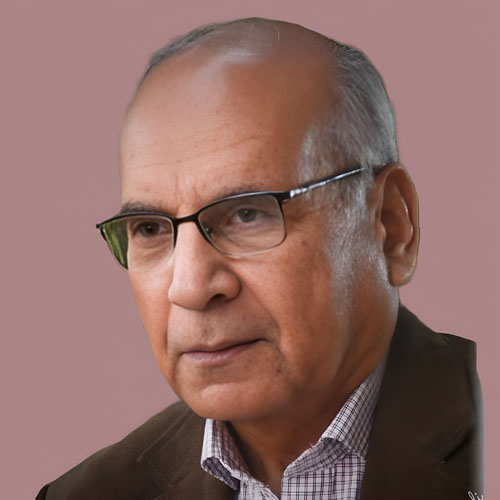
Jalil Aali
Professor Jalil Aali is a distinguished poet, literary critic, educationist, and Iqbal scholar. Born in 1945 in Amritsar, India, he received his education in Lahore, earning master’s degrees in Urdu and Sociology from the University of the Punjab. Following a notable teaching career, he retired as the Head of the Department of Urdu Language and Literature at Federal Government Sir Syed College, Rawalpindi.
Professor Aali has authored several acclaimed poetry collections, including ‘Khwab Dareecha,’ ‘Showk Sitara,’ and ‘Arz-e-Hunar Se Aage’ (2007), the latter of which garnered the Ahmed Nadeem Qasmi Award (2007) and the Writers’ Guild Award (2005-2007). He has contributed over fifty critical articles to prominent literary journals and has compiled and edited two annual editions (2002 and 2005) of ‘Pakistani Adab,’ an anthology of Urdu poetry published by the Pakistan Academy of Letters.
His contributions have been recognized with numerous accolades, including the Tamgha-e-Imtiaz for poetry in 2016 and the Lifetime Achievement Award from the Punjab Arts Council in 2023. Professor Aali’s poetry has been performed by renowned artists, and he continues to inspire through his lectures, literary conferences, and media appearances.
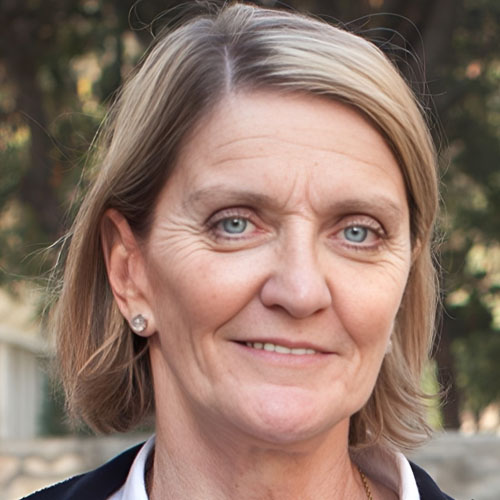
Kathy Gannon
For 35 years, Kathy Gannon covered Afghanistan and Pakistan for The Associated Press as chief correspondent and later as news director. She has also reported on the 2006 war in southern Lebanon, the Iraq war, the Central Asian states, and Azerbaijan. Gannon was the only Western journalist allowed in Kabul by the Taliban in the weeks preceding the 2001 U.S.-British offensive in Afghanistan. In addition to her coverage of South and Central Asia, she has reported on the Middle East, including the 2006 Israeli war against Hezbollah in southern Lebanon and the war in northern Iraq.
In April 2014, Gannon was seriously wounded—hit by seven bullets—while covering preparations for the Afghan national elections when an Afghan police officer opened fire on the car in which she was riding. Her colleague and close friend, AP photographer Anja Niedringhaus, was killed in the attack.
She underwent 18 surgeries and returned to Afghanistan and Pakistan, where she explored sexual abuse in Islamic madrassas, took a deep dive into honour killings (which claim the lives of more than a thousand women each year at the hands of their family members), followed the Taliban’s sweep through Afghanistan, and returned to cover another presidential election in 2019.
A Canadian citizen, she was the city editor at the Kelowna Courier in British Columbia and worked at several Canadian newspapers. She has received numerous awards, including two honorary doctorate degrees, New York’s Columbia University School of Journalism Lifetime Award, the Committee to Protect Journalists’ Burton Benjamin Award for press freedom, the John Peter and Anna Catherine Zenger Freedom of the Press Award from the University of Arizona School of Journalism, and the James Foley Medill Medal for Courage in Journalism from Northwestern University’s Medill School of Journalism, Media, and Integrated Marketing Communications.

Khayyam Mushir
Khayyam Mushir has been a columnist for the News, contributing articles on various themes including art, literature, politics, and current affairs. He is trained as a Chartered Accountant and currently works for a multinational.
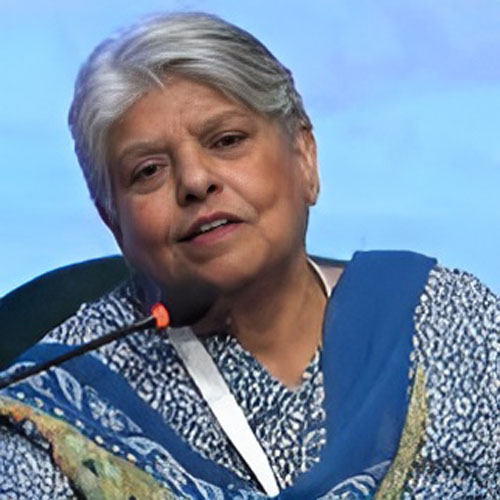
Kishwar Naheed
Kishwar Naheed is one of Pakistan’s most renowned feminist poets. Her first collection of poems, ‘Lab-i-Goya’ (1968), earned her the prestigious Adamjee Prize for Literature. She is the founder of Hawwa (Eve), an organization dedicated to empowering women economically. Kishwar Naheed has also held the position of Director General of the Pakistan National Council of Arts (PNCA).
In recognition of her contributions, she has received numerous awards, including the prestigious Sitara-i-Imtiaz in 2000. Her poetry has been translated into several languages, including English, French, and Italian. Oxford University Press has not only published her original works in Urdu (‘Intikhab-e-Kalam: Kishwar Naheed’ and ‘Pakistan ki Tehzeeb-o-Saqafat’) but also English translations of her works (‘The Distance of a Shout’ [poetry], ‘A Bad Woman’s Story’ [memoirs], and ‘The Culture and Civilization of Pakistan’).
In 2022, the Government of Pakistan honoured her with the Hilal-e-Imtiaz, the second-highest civilian award, in recognition of her exceptional contributions to literature.
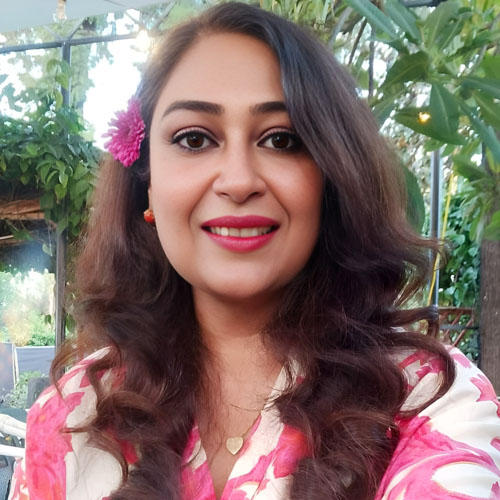
Madiha Arsalan Haneef
Madiha Arsalan Haneef is a multifaceted individual with a rich background in writing, education, and community service. As a feature writer and poet, she has made her mark with her debut book ‘Bhadoon’ and has two books of English poetry and an anthology of travel essays in the publishing pipeline. Her contributions to English newspapers such as The News, The Friday Times, The Nation, and We News cover a range of topics including social issues, book reviews, and travelogues.
In her role as a creative consultant, Madiha has worked with organizations like USAID and Centre for Governance and Public Accountability (CGPA). As an educationist, she has taught at various universities including SZABIST and Hamdard, and currently serves as the Principal of the O’ Level section at The City School.
Beyond her professional achievements, Madiha is an artist, traveller, and pâtissier, showcasing her diverse talents and passions. Her varied interests and contributions make her a dynamic and influential figure in her community.
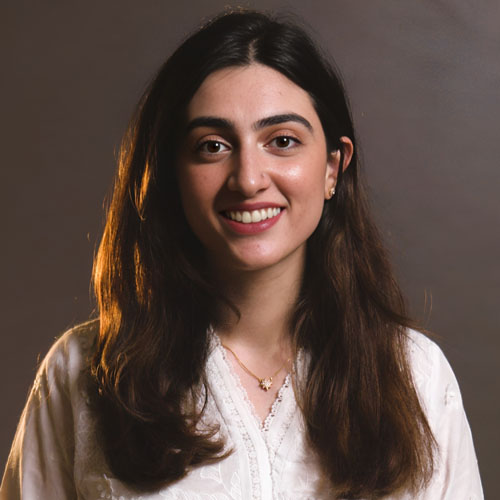
Maha Husain
Maha Husain is a legal researcher specialising in climate change law, environmental law, and public international law. She is the Team Lead of the Climate & Environment Initiative (CEI) and a Research Associate at the Research Society of International Law (RSIL), where her work explores legal solutions to climate change and environmental issues facing Pakistan and the world.
She has worked with UNDP Pakistan to promote access to environmental justice and strengthen complaint and remedy mechanisms for victims of environmental rights violations in Balochistan. Maha is among twenty young leaders from across Asia-Pacific and the United States selected for the 2024 Asia Foundation LeadNext: Ambassadors for a Global Future Fellowship cohort, where she developed her leadership skills and deepened her cross-cultural communication skills. Maha is currently serving as a Youth Empowerment in Climate Action Platform (YEACAP) Shakers Fellow 2024, where she is building her capacity on community mobilisation, resource mobilisation and team building to expand her climate advocacy.
Maha is a recipient of the Storytelling Initiative grant from the Leadership & Learning for Sustainability Lab at McGill University, where she received mentorship to produce a podcast centring the voices of those on the frontlines of socio-environmental crises. Through her research work, Maha has represented Pakistan at the 3rd Asia Pacific Environmental Human Rights Defenders (EHRD) Forum 2023, the 8th Advanced International Humanitarian Law South Asian Academics Platform (AISAAP) 2023, and the 2023 Transformations Conference. Maha has also co-organised RSIL’s Women in International Law Mentoring Programme to support female lawyers pursuing careers in international law in Pakistan.
Maha completed her law degree at the University of Cambridge (Downing College), where she earned the Senior Harris Scholarship. She has obtained professional certifications in climate change law, water resource management, and planetary health from the British Institute of International and Comparative Law (BIICL), Griffith University, and the Geneva Centre of Humanitarian Studies, respectively.
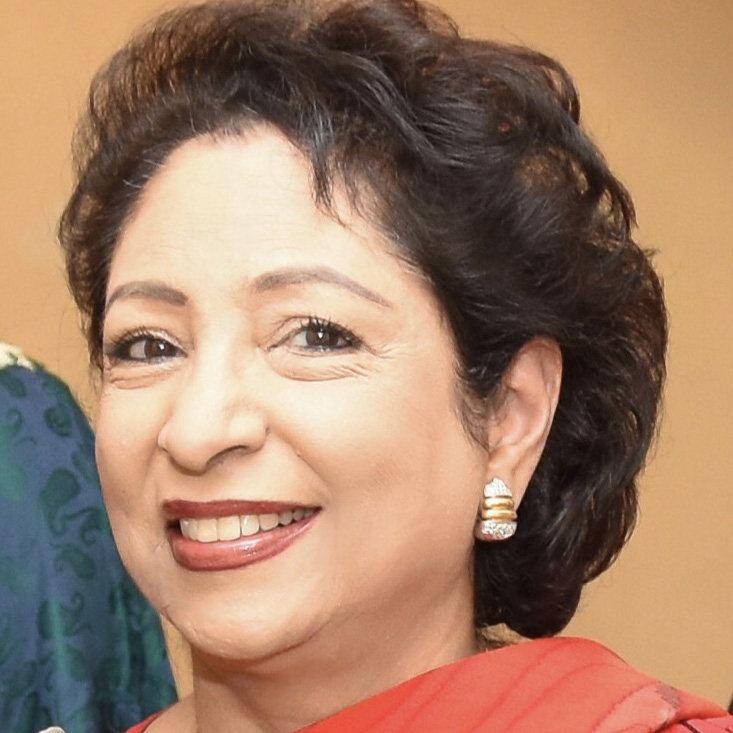
Maleeha Lodhi
Maleeha Lodhi has served as Pakistan’s Ambassador and Permanent Representative to the United Nations in New York, the first woman to represent Pakistan at the UN. She twice served as Pakistan’s Ambassador to the US (1993-1996, 1999-2002) and as High Commissioner to Britain (2003-2008). She also served as a member of the UN Secretary General’s Advisory Board on Disarmament Affairs from 2001 to 2005. She was the first woman in all of Asia to become the editor of a national daily newspaper. In 1994, Time magazine nominated her as one of a hundred people in the world who will help shape the 21st century, the only one from Pakistan. Dr. Lodhi was a Public Policy Scholar at the Woodrow Wilson Center for International Scholars in Washington in 2010 and a Fellow at Harvard University’s Kennedy School in 2008. She is the recipient of the President’s award of Hilal-e-Imtiaz for Public Service in Pakistan. She is the author of two books: ‘Pakistan’s Encounter with Democracy’ (1994) and *Pakistan: Internal and External Challenges’ (2004). She is also the editor of ‘Pakistan: Beyond the “Crisis State”’ and ‘Pakistan: Search for Stability’.
Maryam Raja
Maryam Raja is a storyteller, content creator, and mass communication student. She is passionate about storytelling and creativity. As a writer, she started her storytelling journey in April 2024. Maryam thrives on exploring new ideas and connecting with diverse perspectives. She likes to talk about history, and when she is not writing, she finds herself doing photography, art journaling, or curled up with a good book. She believes in the power of words to inspire change and foster understanding. Whether it’s travel, art, or just everyday life, Maryam aims to connect and inspire through her lens.
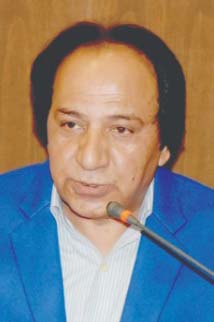
Mehboob Zafar
Mehboob Zafar is a poet in Urdu and Punjabi; he also writes in Sindhi and Hindi. Recipient of the Bahadur Shah Award in Delhi, he has translated many English and Sindhi writings about the great Sufi poet of Sindh, Shah Abdul Latif Bhittai. Mehboob Zafar has also translated modern Urdu short stories and poetry, which have been published in various literary magazines. He is President of Islamabad based literary organization Zawiya. He is the anchor and editor of ‘Afkaar’, a literary programme aired from Radio Pakistan, Islamabad. He has a master’s in Urdu literature and has been working with the Pakistan Navy.
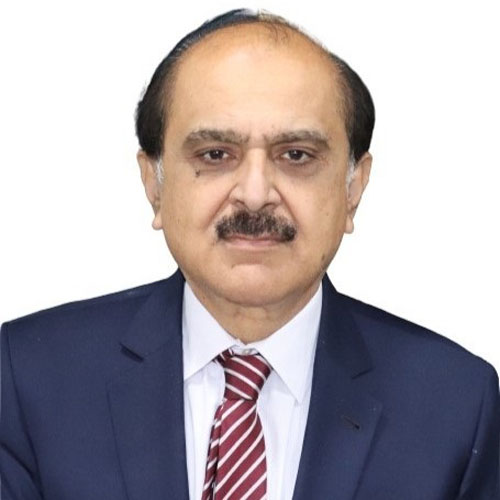
Mohyuddin Ahmad Wani
Mohyuddin Ahmad Wani is a distinguished civil servant with over 22 years of experience in top management roles within the public sector. He holds a BSc in Electrical Engineering from UET, Lahore, an LLM from Warwick, UK, and a Master’s in Development Studies from the Institute of Social Studies, The Hague.
Wani began his career in the Pakistan Administrative Service (PAS) after passing the Civil Superior Services Examination. His notable roles include Chief Secretary of Gilgit-Baltistan (April 2022 to October 2023), Special Secretary of the Ministry of Federal Education and Professional Training (December 2023 to April 2024), and Additional Secretary, where he also served as Director General of the National Rehmatul Aalmeen Authority, CEO of the National Endowment Scholarships for Talent (NEST), and Chairman of the NFC Engineering Institute Faisalabad.
From July 2018 to June 2020, he was the Chief Operations Officer and Adviser to the CEO at the National Disaster Risk Management Fund. His earlier roles include Director General of the Benazir Income Support Programme (BISP) in Punjab, Joint Secretary at the Prime Minister’s Office, Secretary for Information, Culture, and Archaeology in Punjab, and Managing Director of the Punjab Education Foundation.
He currently serves as the Secretary of the Ministry of Federal Education and Professional Training, a role he has held since April 2024.
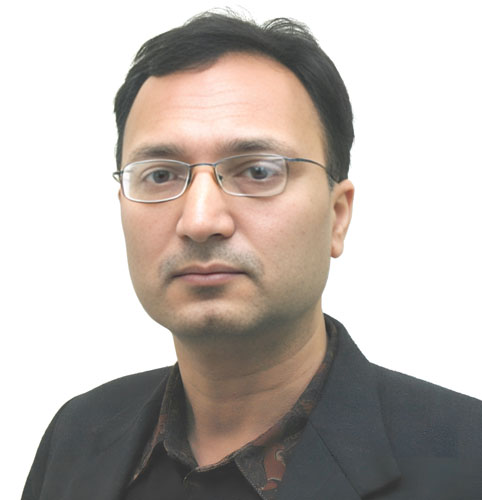
Muhammad Asim Butt
Muhammad Asim Butt, a storyteller, novelist, translator, critic, and editor. He earned an MA in Philosophy from Government College University, Lahore, and began his career as a journalist and human rights activist. He is the Director/Chief Editor at the Pakistan Academy of Letters, Islamabad.
Among his notable works, the Urdu novel ‘Naatamaam’ has garnered both the ‘UBL Literary Excellence Award’ and the ‘Parveen Shaker Aks e Khushbu Award’ for fiction. His other novels include ‘Daira,’ ‘Bhaid,’ and ‘Paani Pe Likhi Kahaani.’ His book of Urdu translations, ‘Borgese Kahaanian,’ was shortlisted for the ‘UBL Literary Excellence Award’ in 2017.
Muhammad Asim Butt is also proficient in writing in English and Punjabi. He has retold the famous Persian tale ‘Qissah Chahaar Darvesh’ in simple English, titled ‘Story of Four Saints.’ In addition to his four novels and two collections of short stories, he has published more than a dozen books of translations of world literature.
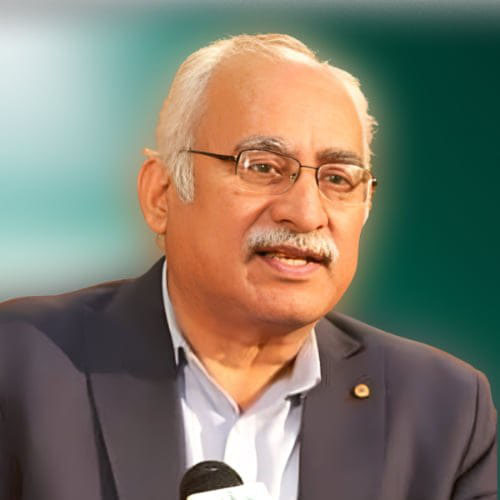
Muhammad Hameed Shahid
Muhammad Hameed Shahid is a distinguished fiction writer and literary critic who began his literary career during his school years, publishing his first book, ‘Paiker e Jameel,’ while still pursuing his university education. He is widely recognized for his short story collections, including ‘Band Ankhoon Se Pare’, ‘Janam Jahanam’, ‘Margzaar’, ‘Aadmi’, ‘Sans Lene Mein Dard Hota Hai’, and ‘Gandam Ki Mehk’, as well as his novels such as ‘Mitti Adam Khati Hai’ and ‘Jang Mein Mohabbat Ki Tasveer Nahein Banti’. In addition to fiction, he has contributed to non-fiction literature. His short stories have been translated into multiple languages, and he has also translated international fiction and poetry into Urdu. In 2017, he received the prestigious National Civil Award, Tamgha-e-Imtiaz, and was honoured with the UBL Literary Excellence Award in the same year. His most recent publication is the autobiography titled ‘Khushboo Ki Dewar Ke Peechay’.
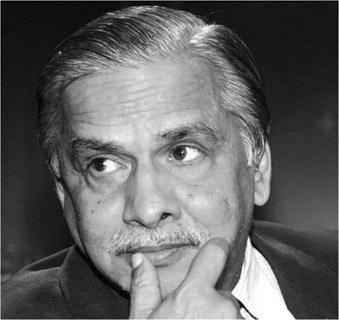
Mujahid Barelvi
A leading journalist, analyst, and commentator, Mujahid Barelvi has been a prominent figure on television for over two decades. He has written extensively for political journals and newspapers and has authored several books on Afghanistan and Balochistan, as well as a book in memory of his friend, the revolutionary poet Habib Jalib. An avid globetrotter, he has also penned a travelogue, ‘Khuwahish-e-Safar main Rahay’, detailing his experiences traveling with heads of state and participating in numerous conferences. Mujahid Barelvi was the first Pakistani journalist to enter Kabul in 1979 after the Soviet invasion. He has served as the secretary of the Karachi Press Club and founded various magazines, including ‘Sonehra Daur’ and ‘Bankari’. Currently, he hosts the program Live with Mujahid on GTV News.
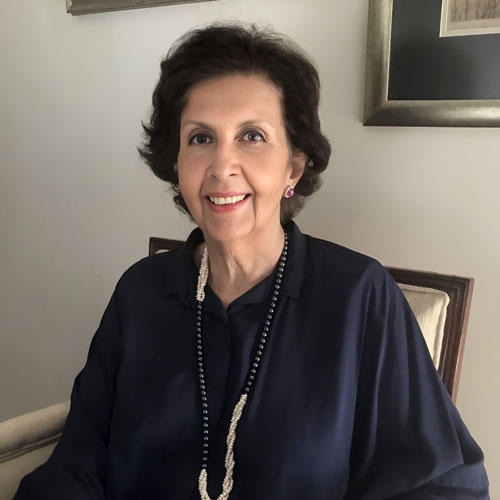
Muneeza Shamsie
Muneeza Shamsie, a writer and critic, is a leading authority on Pakistani English literature and received the Sitara-e-Imtiaz in 2024. She is the author of Hybrid Tapestries: The Development of Pakistani Literature in English and the editor of four anthologies of Pakistani English writing, including the forthcoming In the New Century: An Anthology of Pakistani Literature in English. Her third anthology, And the World Changed: Contemporary Stories by Pakistani Women, received the IPPY Gold Award (2009) and the Foreword Bronze Award (2008) in the United States.
Muneeza is an Area Editor for the online Literary Encyclopedia, Pakistan’s bibliographic representative for Literature, Critique, and Empire Today (formerly The Journal of Commonwealth Literature), and serves on advisory boards for the Journal of Postcolonial Writing, the DSC Prize for South Asian Literature, and the International Centre of Pakistani Writing in English at Kinnaird College for Women University in Lahore. She has chaired literary prize juries, including the Commonwealth Writers Prize (Eurasia) in 2010 and 2011. Based in Karachi, she regularly contributes to the Pakistani press.
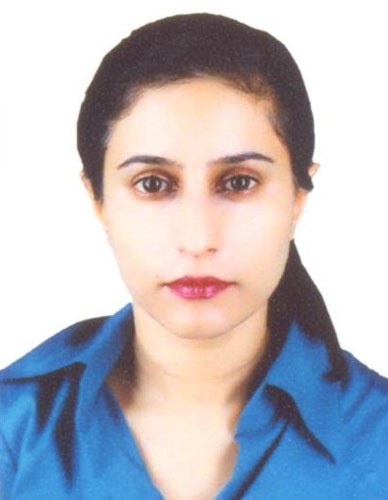
Munizae Jahangir
Munizae Jahangir is an award-winning TV journalist and documentary filmmaker, currently working at Pakistan’s leading media house, Aaj TV, where she anchors a prime-time current affairs show called ‘Spotlight’. Jahangir has been anchoring TV shows and reporting for prominent news media outlets in Pakistan for the last decade, including Express, Dawn, and Geo Network. She also writes for the Dawn newspaper and freelances for India’s NDTV as their correspondent. She was previously NDTV’s country correspondent from 2004 to 2015.
Jahangir has conducted cross-border audience-based talk shows with India and Afghanistan, prominent among them being ‘Sarhad keh Uss Paar’ with Tolo News and ‘Beyond Borders’ with NDTV India. She is the first Pakistani to report for an Indian news channel, NDTV, as their country correspondent.
Jahangir is the editor-in-chief of Voicepk.net, Pakistan’s first digital media platform focusing on human rights issues. The platform has been instrumental in getting justice for women and girl victims of violence, forced conversions, and marriages.
Jahangir focuses on conflict areas and has produced and directed an award-winning documentary on the war in Afghanistan called ‘Search for Freedom,’ aired on ABC.
She is an elected co-chair of the Human Rights Commission of Pakistan and an elected board member of South Asians for Human Rights (SAHR). She is a founder of SAWM (South Asian Women in Media), a group that represents women journalists across South Asia.
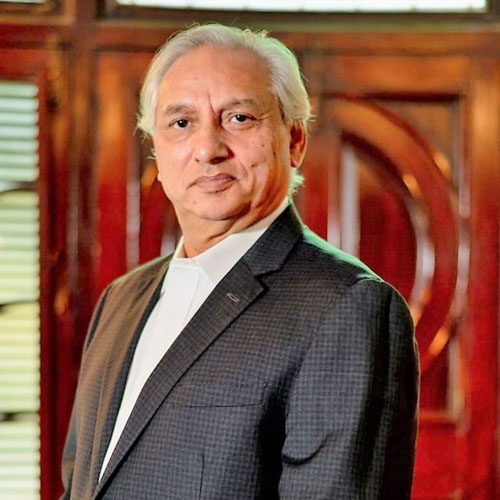
Nadeem Hussain
Nadeem Hussain is one of Asia’s leading social impact entrepreneurs, technology investors, and financial inclusion pioneers. He is the founder of Telenor Microfinance Bank (formerly Tameer Microfinance Bank), lauded by the World Bank as one of the most socially impactful banks in its field. Its EasyPaisa offering is the world’s second-largest branchless banking payments solutions. Nadeem’s subsequent venture Planet N Group is an emerging markets, social impact, and technology investment firm with portfolio companies in Pakistan, Egypt, and the UAE. He previously spent 27 years at Citigroup in eight countries in regional management within commercial, consumer, retail and investment banking. Nadeem is a global authority on Financial Inclusion and Development through Digitisation and is globally recognized for his dedication and service to financial inclusion. He is a Board Member of State Bank of Pakistan; Steering Committee, National Financial Inclusion Program, Government of Pakistan and on the advisory board of Institute of Business Administration; NUST; and Financial Inclusion partner of CGAP (the Consultative Group to Assist the Poor).
Nadia Tahir
Dr Nadia Tahir, an economist with MPhil and PhD degrees from GCU, Lahore, and postdoctoral work at the University of Cambridge, is known for her dedication to teaching and research. She has published extensively in national and international journals. Recently, she served as Managing Director of the Quality Assurance Agency at the Higher Education Commission. Over two decades, she has taught at various universities, emphasizing practical relevance in education. A respected public speaker, she is frequently invited to media discussions and lectures.
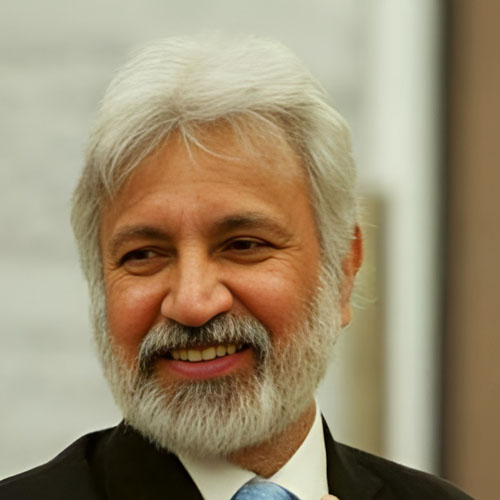
Naeem Ahmed Mirza
Naeem Ahmed Mirza is a human rights activist, writer, and journalist. He has been associated with the Aurat Foundation, a women’s rights organisation, for the last 25 years and is currently serving as its Executive Director. He works on issues related to gender justice, women’s rights, democratic development, and press freedom. At the Foundation, his work has contributed to effective national advocacy to address gender-based violence, improve women’s political participation, and mobilise citizen action in support of women’s rights. He is the author of the book ‘Tareekh ki Azeem Feminist Auratein: Hayaat, Nazriay aur Tehreekein’ (Great Feminist Women in History: Lives, Ideologies and Movements). He is the recipient of the Fatima Jinnah Award for Contribution to Women’s Empowerment in 2005 and the Shaheed Benazir Bhutto Human Rights Award in 2010. In 2022, he also received the HUM Women Leaders Award for his services to women’s betterment.
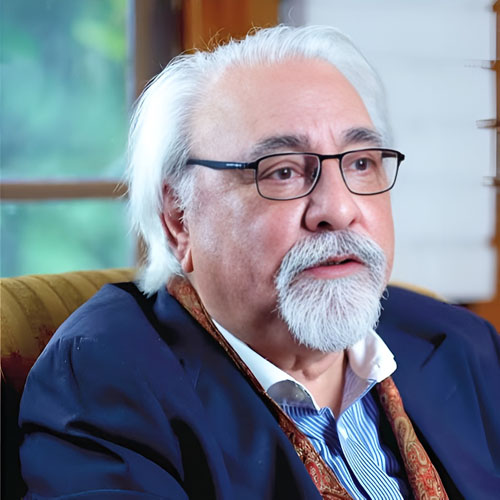
Naeem Pasha
Naeem Pasha is a renowned architect and artist. He earned his Master of Science in Architecture from Penn State University in 1973 and his Bachelor of Architecture from the University of Engineering & Technology Lahore in 1967. Specializing in Urban Design Concepts and Environmental Psychology, Naeem has been affiliated with the American Institute of Architects (AIA) and the Institute of Architects Pakistan (IAP). His notable projects include the National Art Gallery and the State Life Insurance Tower in Islamabad, and the Pakistan Air Force Academy in Risalpur. Naeem has held significant roles, such as Principal at Naeem Pasha Architects and Planning Consultants, and Principal Partner at Suhail & Pasha. Beyond architecture, he is an accomplished artist and poet, co-owning the Rohtas Contemporary Art Gallery in Islamabad. His works have been exhibited widely, and he has published books like ‘Tulip in Sand Dunes’ and ‘Dhool Ki Chador.’ In 2020, Naeem was awarded the Tamgha-i-Imtiaz, one of Pakistan’s highest civilian honours, for his lifetime contributions to architecture and art. His work has been featured in major publications like the New York Times and Newsweek.
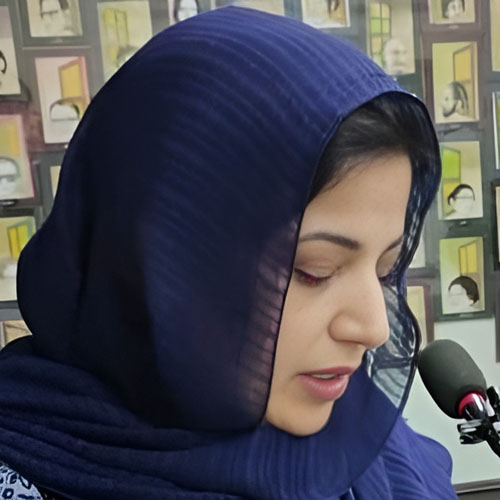
Naheed Qamar
Dr Naheed Qamar is a distinguished poet, writer and academic from Pakistan. She currently holds the position of Associate Professor in the department of Urdu, Federal Urdu University of Arts, Science and Technology, Islamabad. Dr Qamar has authored 6 books of poetry and criticism. She also has over 30 research papers on her credit, contributing significantly to various fields within Urdu language and literature.
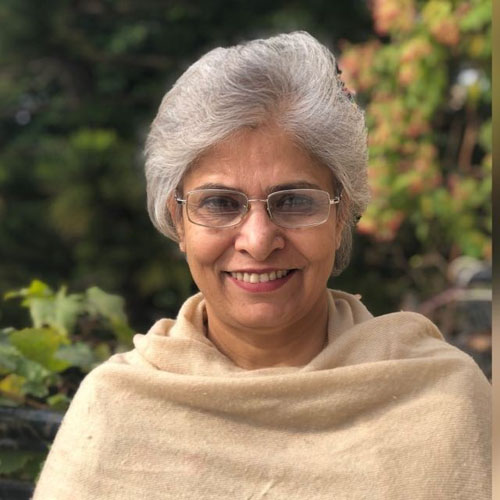
Najeeba Arif
Prof. Dr Najeeba Arif is an eminent scholar, creative writer, critic and researcher. Her major field of specialization is Archival Research. She has discovered, edited and published about a dozen manuscripts of eighteenth and nineteenth century. She also founded the first Indexation Agency for the Urdu Research Journals at International Islamic University, Islamabad and has been the editor of renowned research journals of Pakistan. She has been invited to several universities in Europe and USA to present her research. Some of her works in the field of Criticism are of pioneer nature, including her research on the Impact of 9/11 on Pakistani Urdu Fiction and the Impact of Colonialism on Sirah literature in Urdu. Sufi literature has been another field of her interest. Besides her research in Sufi literature, she has translated ‘Qaseeda Burda Shareef’ from Arabic into Urdu verse as well as a voluminous book on Science, Mysticism and the Concept of Allah from English to Urdu. Her collection of Urdu poetry ‘Ma’ani se Ziyada’ won the Award of the Best book of the year in 2015. Her poetry is being taught at the Ankara University, Turkey. Her other creative works include a book of memoirs, titled ‘Raagni ki Khoj Main’, a collection of short stories ‘Meethay Nalkay’, a novel, ‘Makhota’, travel writings and light essays. She writes in Urdu and English and knows Persian, Arabic and Punjabi. She has authored 18 books and published more than 60 articles in national and international journals. Currently she is serving as the Chairperson of Pakistan Academy of Letters, Islamabad.
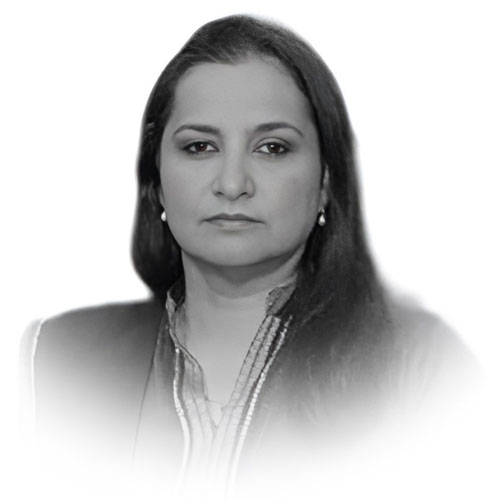
Nasim Zehra
Nasim Zehra is a prominent Pakistani journalist, television anchor, and author, known for her expertise in national security and foreign affairs. She pursued her education in business at Quaid-i-Azam University and later studied diplomacy at the Fletcher School of Law and Diplomacy at Tufts University.
Zehra has had a diverse career, starting as a development practitioner with the Canadian International Development Agency and the Swiss Agency for Development and Cooperation. She transitioned into journalism, becoming a well-respected voice in Pakistani media. She has hosted several influential TV programs, including ‘Policy Matters’ on Dunya News and a primetime current affairs talk show on Channel 24.
In addition to her television work, Zehra has been a visiting lecturer at prestigious institutions such as the School of Advanced International Studies at Johns Hopkins University and Quaid-i-Azam University. She is also a prolific writer, contributing columns to international publications like Gulf News, Khaleej Times, and Arab News.
Her notable work includes the book ‘From Kargil to the Coup: Events that Shook Pakistan,’ which provides an in-depth analysis of the Kargil conflict and its impact on India-Pakistan relations. Zehra’s contributions to journalism have been recognized with awards, including the Agahi Award for excellence in journalism.

Nasira Zuberi
Nasira Zuberi is a journalist and media professional with extensive experience in both print and electronic journalism. Throughout her career, she has contributed her expertise to organizations such as Business Recorder, Aaj News, Geo News, and NewsOne. She is a columnist for Independent Urdu and Humsub. Nasira Zuberi holds the distinction of being the only female journalist who successfully launched two news channels, Aaj News and NewsOne. Her leadership roles include serving as the former Controller News at Aaj TV, Director News at NewsOne, and Editor of the Business Desk at Geo News. In addition to her contributions to journalism, Nasira Zuberi is an author, with three published collections of poetry: ‘Shagoon,’ ‘Kaanch ka Charaagh,’ and ‘Teesra Qadam.’ Her fourth book will soon be available in the market. Throughout her professional journey, she has had the privilege of traveling to various countries and participating in prominent conferences worldwide, further enriching her global perspective and insights.
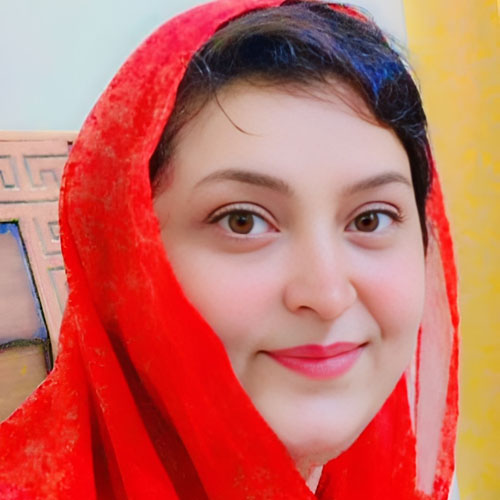
Nida Maher
Naheed Ali, known by her pen name Nida Maher, is a distinguished poet who has made significant contributions to Urdu and Punjabi literature. Her poetic journey is marked by a deep connection to her cultural roots and a profound expression of human emotions. Nida Maher was born and raised in a culturally rich environment that nurtured her love for poetry from a young age. Her early exposure to the literary traditions of Urdu and Punjabi played a crucial role in shaping her poetic voice. She is the author of the recently published Punjabi book ‘Sandali Nain Pyase’.
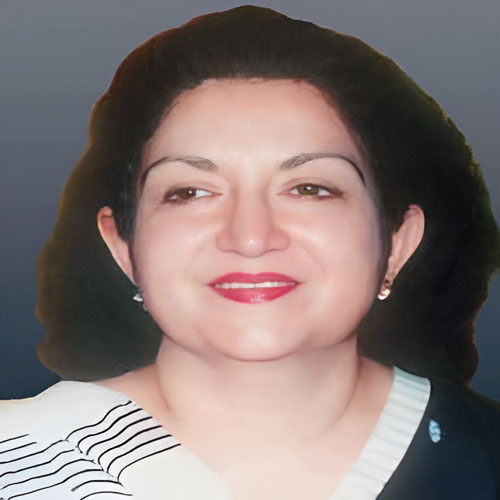
Nilofar Iqbal
Nilofar Iqbal, a distinguished writer based in Islamabad, is renowned for her contributions to modern Urdu literature. She has authored acclaimed short story collections such as ’Ghanti’, ’Surkh Dhabbe’, and ’Syaah Sona’. Despite limited widespread attention, her work is celebrated for its boldness and powerful communication, significantly contributing to the realist tradition.
In the preface to ’Ghanti’ (1996, reissued in 2022), Nilofar states, ‘My short stories neither seek to reform mankind, nor threaten Islam. There is no trickery or deliberate ambiguity. There is no shadow of ‘resistance literature’ either. I have no vain hopes.’ This reflects her straightforward and daring storytelling approach.
Nilofar’s literary journey began with writing in English for her university magazine. Her career took off after Colonel Muhammad Khan encouraged her to write for his humorous Urdu magazine, leading to recognition from literary giants like Ahmad Nadeem Qasmi and Mirza Adeeb.
Her stories are known for strong character development, which she believes is essential for impactful narratives. Nilofar emphasizes that well-developed characters are at the heart of any story, deeply influencing readers’ emotions.
Her book ’Syaah Sona’ was awarded the Saadat Hassan Manto Award for best creative fiction in 2023 by the Pakistan Academy of Letters. She has also completed her novel ’Sunehra Haathi’.
Noman Jaffar
Noman Jaffar, also known as Islamabadwala on Instagram, creates one-minute, research-based documentaries about art, history, geography, and academics. Originally from the twin cities, he excelled academically, receiving scholarships for his studies. After starting ACCA at MIUC, he had to quit due to financial issues and took up various odd jobs to support his family. In December 2023, he shifted to social media, quickly growing an audience of over 50,000 followers on Instagram within six months. His current follower count is 68,000, and he continues to make one-minute documentaries, improving every day.
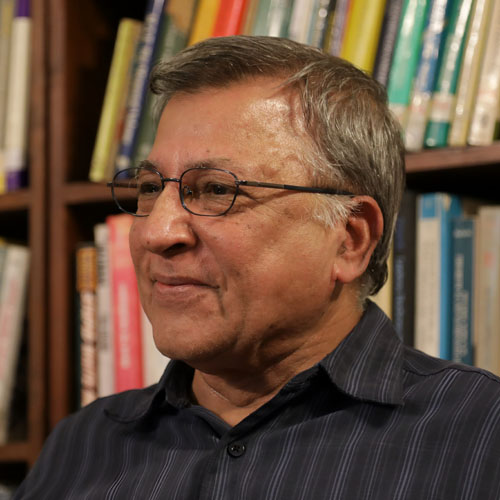
Pervez Hoodbhoy
Pervez Amirali Hoodbhoy taught physics at Quaid-i-Azam University for 47 years (1973-2021) and was a Distinguished Professor at Forman Christian College (2013-2020). He has been a visiting professor at MIT, Carnegie Mellon, University of Maryland, and a post-doc at the University of Washington. In 2022, he founded The Black Hole, a community space in Islamabad for science, art, and culture.
Dr Hoodbhoy graduated from MIT with degrees in electrical engineering, mathematics, solid state physics, and a PhD in nuclear physics. He sponsors The Bulletin of the Atomic Scientists, is a member of the World Federation of Scientists, and founded the Eqbal Ahmad Centre for Public Education. Since 1988, he has led Mashal Books, promoting modern thought and human rights in Urdu.
He has received numerous awards, including the Baker Award (1968), Abdus Salam Prize (1984), UNESCO’s Kalinga Prize (2003), Joseph A. Burton Award (2010), and Jean Meyer Award (2010). He was named one of Foreign Policy’s 100 most influential global thinkers in 2011 and served on the UN Secretary General’s Advisory Board on Disarmament Affairs (2013-2017). In 2019, he received an honorary doctorate from the University of British Columbia.
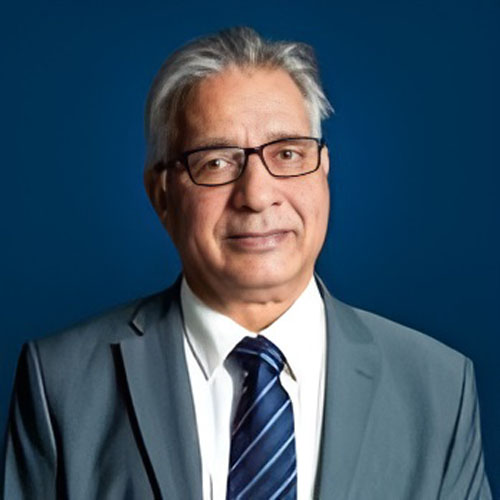
Peter Jacob
Peter Jacob is a prominent Pakistani human rights defender, researcher, and journalist with over 35 years of experience. He currently serves as the Executive Director of the Centre for Social Justice and the Chairperson of the Peoples Commission for Minorities’ Rights. Jacob has been recognized internationally, receiving the US Department of State’s International Religious Freedom Award. He has authored and edited several influential books, including ‘Insani Haqooq Ka Irteqa’ (Evolution of Human Rights) and ‘Insani Haqooq Ka Bainulaqwami Nizam’ (International Human Rights Protection Mechanism). Additionally, he co-authored ‘Lessons from the Nationalisation of Education in 1972’. Jacob has also contributed numerous articles on human rights, social justice, and minority rights, significantly impacting the discourse on these issues in Pakistan.
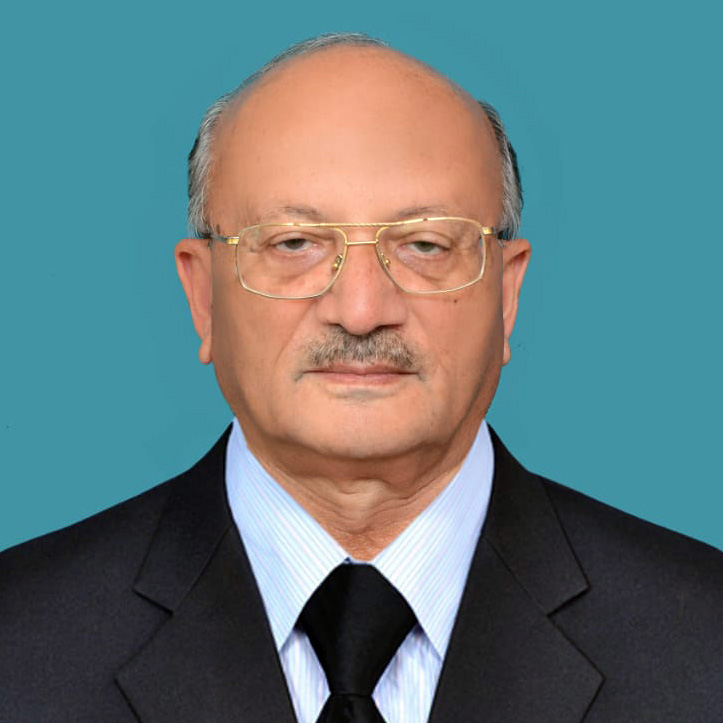
Pritam Das Rathi
Pritam Das Rathi, a retired civil servant residing in Islamabad, has a career history spanning 30 years in the government sector. Beyond his government service, he has also been an advocate for the Hindu community in Islamabad. As the President of the Islamabad Hindu Panchayat for two years, he worked to uplift and empower his community. One of his contributions is the construction of the Shamshan Ghat, a sacred site for the Hindu community, and a Community Centre, fostering unity and collaboration among its members. Mr Rathi’s dedication to public service and his commitment to the well-being of his community make him an inspiring figure.

Qasim Yaqoob
Qasim Yaqoob is recognized as a distinguished poet and critic of Urdu literature. He serves as the editor of the renowned literary journal, Niqaat, which has been continuously published since 2006. Yaqoob completed his MPhil thesis titled ‘Urdu War Poetry’ while conducting research for his PhD in critical theory. Yaqoob has made significant contributions to Urdu criticism, particularly in exploring the relationship between society and literature. His notable works in this area include three books: ‘Fard aur Samaaj,’ ‘Taaqat aur Samaaj,’ and ‘Zubaan aur Samaaj.’ His recent publication in literary criticism, ‘Tanqeedi Siaaq aur Naey Sawaal,’ has received critical acclaim. In the realm of poetry, Yaqoob is esteemed for his contributions to both Nazm and Ghazal. His book, ‘Khaali Badan ki Khamoshi main,’ is highly regarded in literary circles. Qasim Yaqoob is affiliated with the Department of Urdu at Allama Iqbal Open University, Islamabad.
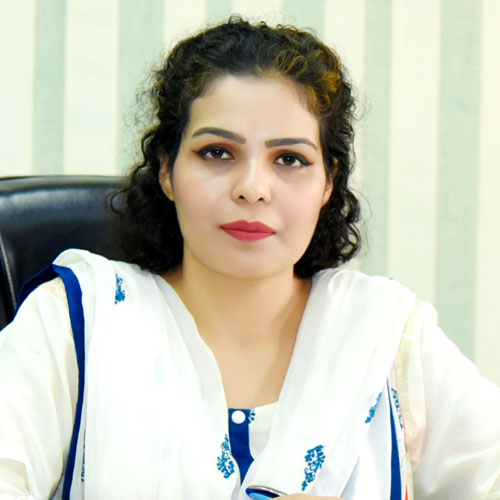
Qurat ul Ain Fatima
Qurat ul Ain Fatima is a distinguished civil servant currently serving as Director Media in a government organization. She is recognized for her extensive work in media and her collaborations with various organizations and development partners, particularly the UNDP. A member of the 37th Common Training Program of Pakistan’s civil services, she holds academic qualifications in both medicine and law, and has a profound passion for literature.
Qurat is an active writer, sharing her insights on socio-economic issues and literary pieces, including ‘Inshaiye’ (essays), on social media. Her writings have been featured in various literary magazines and platforms such as ‘Hum Sub,’ and she regularly contributes columns to leading newspapers. She has also served on the editorial board of Mah e Nau, further establishing her presence in the literary community.
In addition to her writing, Qurat is dedicated to education. She has taught at institutions including the Railways Walton Academy and the Election Commission Academy, where she inspires new learners with her knowledge and experience. Her multifaceted career reflects her dedication to public service, education, and literature.
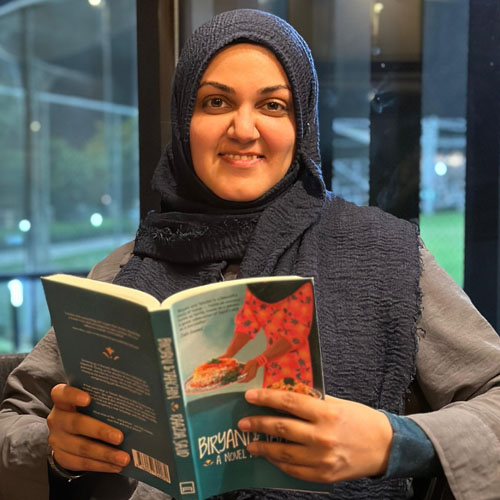
Raazia Sajid
Raazia Sajid is an award-winning writer currently based in Islamabad, where she writes and teaches ESL and writing. Raazia’s first novel, ’Biryani and Tahchin’, was released in 2024 and published by Reverie Publishers in Pakistan. Her work, which centres on the themes of women’s lives, freedom, and cultures, is inspired by her nomadic lifestyle and her lack of a permanent address.
Raazia’s stories have been placed in prestigious contests, starting with Times of Oman’s nation-wide literary contest in 2013 when she was still a teenager. She has also recently appeared on the Pakistan literary scene: she was longlisted for the ZHR Writing Prize in 2023, and was the runner-up for the Salam Award this year (2024). The first chapter of her debut novel, Biryani and Tahchin, won a place in Gutsy Great Novelists’ Chapter One Prize. In addition, her work has appeared in Dawn’s Young World, Writing Kid, On the Premises, and Chapter and Verse. She can be found at www.raaziasajid.com
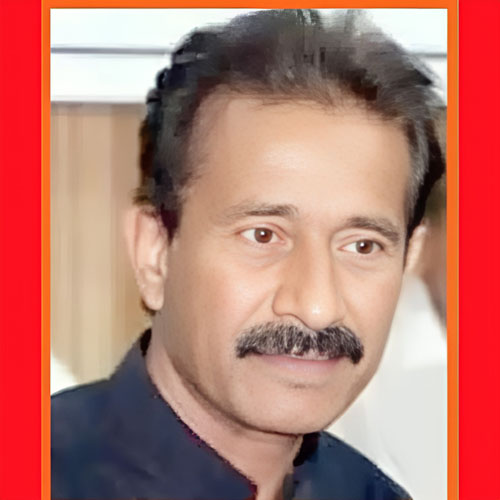
Rana Saeed Doshi
Rana Saeed Doshi is a distinguished figure in Urdu poetry and literature. He completed his early education at Government High School Phularwan and matriculated from Government High School, Hasan Abdal. He earned his BA and MA in Punjabi from Punjab University, Lahore, and his LLB from Punjab University Law College, Lahore.
His career began in the textile industry, working at Fauji Cotton Mills Hasan Abdal and Wah Industry Wah Cantt. He later joined the Income Tax Department Lahore in 1984. Doshi’s literary journey started in 1982, and he quickly became a prominent voice in All Pakistan Mushairas. His poetry, characterized by its depth and unique style, has been published in various literary papers since 1990.
His first poetry collection, ‘Zameen Takhleeq Karni Hai,’ was published in 2006, with subsequent editions in 2010 and 2016. He also authored ‘Heer Doshi,’ a Punjabi critique of Waris Shah’s ‘Heer Ranjha,’ which earned him the Waris Shah International Award 2023 and recognition from The Punjabi Literary Association Canada. Rana Saeed Doshi’s contributions to poetry and ghazal have made him a revered name in literary circles.
Rashid Saleem
Muhammad Rashid Saleem is an Associate Professor of English Literature and Vice Principal at one of the public colleges in Islamabad. With 28 years of experience, he has been involved in teacher training at both national and international levels and has represented his country in China and the US in the education sector. He has been a core member of the National Curriculum Framework Writers Team, 2006, and has developed the National Curriculum of English, 2006, for Grades I to XII. He is a poet, translator, and intellectual who frequently delivers lectures at The Black Hole, Islamabad, on diverse fields ranging from philosophy, literature, and education to linguistics, neuroscience, physics, electronics, and computer science. He also frequently appears at other academic and literary forums in the twin cities and on PTV World programs. Apart from writing his poetry in Urdu, he has translated selected poetical works of English poets such as Philip Larkin, Sylvia Plath, Emily Dickinson, and Robert Frost into Urdu. He has also translated some ghazals of the great Persian poet, Mirza Abdul Qadir Bedil. His original and translated works have been published in various Urdu literary magazines.
Rayan Khan
Rayan Khan is a digital marketer and emerging poet based in Montreal. His writing, which spans fiction, nonfiction, and poetry, has been featured in publications such as The Aleph Review and Vallum Magazine. With a Master’s in English Literature from McGill University, Rayan is an active participant in Montreal’s vibrant poetry scene, often found performing at open mic nights across the city. He is currently working on his first chapbook, bringing his unique perspective and voice to a wider audience.
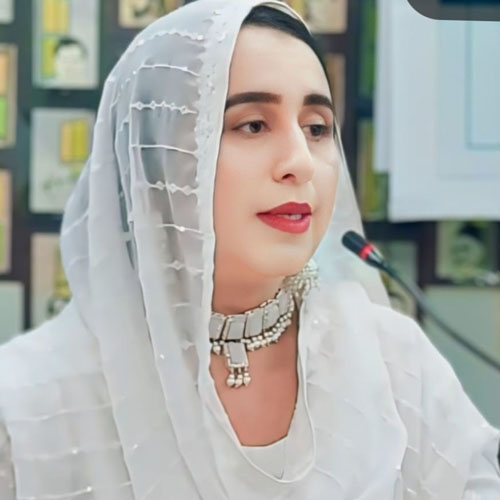
Riffat Waheed
Riffat Waheed is a contemporary poet known for her evocative and socially conscious poetry. Waheed’s work highlights issues such as gender injustice, caste atrocities, and class oppression, blending mysticism and romanticism with defiance and hope. Her poetry reflects a deep connection to her Punjabi identity and a commitment to addressing the struggles of the disenfranchised. Waheed’s innovative and passionate writing continues to resonate with readers, making her a significant voice in modern Punjabi literature.

Rina Saeed Khan
Rina Saeed Khan is an award-winning environmental journalist and consultant based in Islamabad, Pakistan. She is a member of the Prime Minister’s National Climate Change Council and was appointed Chair of the Islamabad Wildlife Management Board (IWMB) in November 2020, overseeing the Margalla Hills National Park and the upcoming Margalla Wildlife Centre.
Rina began her journalism career in 1992 with The Friday Times and later worked as a communications consultant for UNDP and WWF-Pakistan. She holds a BA from Grinnell College, USA, and an MA in Environment and Development from the London School of Oriental and African Studies as a Chevening Scholar.
She has received international awards, including the Earth Journalism Award in 2009, and wrote the popular ‘Earthly Matters’ column for Dawn for over ten years. Currently, she writes for Express Tribune and Reuters Alertnet, and has trained journalists in climate change reporting.
Rina has attended multiple UN Climate Change Conferences and co-authored two books on Pakistan’s environment: Water in the Wilderness (2016) and From Mountains to Mangroves (2017).
She recently authored a guidebook for journalists reporting on climate change for GIZ in 2024 called Pakistan: On the Frontline of Climate Change.
Rizwan Akhtar
Dr Rizwan Akhtar completed his PhD in postcolonial literature at the University of Essex, UK, in 2013. His main area of research is South Asian literature in English, with a sharper focus on Indian and Pakistani writers. He is equally interested in gender studies, feminism, and modernism. He has published research papers in areas as diverse as memory studies, memoir writing, postcolonial poetry, and partition narratives. He has also presented his papers at international conferences in Scotland, Northern Ireland, England, and Sweden, covering research fields as diverse as crime fiction, adaptation studies, and modernist aesthetics. Rizwan Akhtar is also an internationally published poet. His debut collection, ‘Lahore, I Am Coming’ (2017), was published by the Punjab University Press.
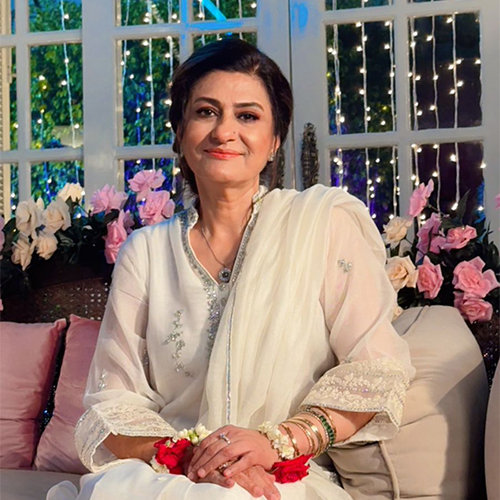
Saba Hameed
Saba Hameed is a distinguished Pakistani actress and director. She began her four-decade-long career in 1978 on television and also worked in theatre from the mid-1980s to the mid-1990s.
In recent years, Saba has continued to captivate audiences with her performances in several popular dramas. Notable among these are “Kahin Deep Jaley,” where she played a pivotal role, and “Mere Humsafar” and “Noor Jahan.” Saba’s portrayal of Noor Jahan has been widely praised for its depth and complexity.
Throughout her illustrious career, Saba has received several accolades, including the prestigious Pride of Performance award in 2012.

Saeed Shariq
Saeed Shariq, born M. Ajmal Saeed in 1993, is a celebrated young poet from Islamabad, Pakistan. At the age of 24, he garnered widespread acclaim and prestigious awards, including the Parveen Shakir Aks-e-Khushboo Award, the Baba Guru Nanak Literary Award, and the Kaar-e-Khair Award for his debut collection, Saaya (2017).
Saeed Shariq’s ghazals stand out for their imagery, emotional intensity, depth, and nuanced exploration of human experiences, masterfully blending magical realism and symbolism. His poetry is marked by its metaphysical quality and innovative metaphors, earning praise from critics and readers alike.
Featured in esteemed research-based anthologies such as Ghazal Zinda Rahay Gi (2016, Pakistan), Saat Pakistani Shaeyr (2019, India), and Pakistan Me Urdu Ghazal (2022, Pakistan), Saeed Shariq’s reputation as one of Pakistan’s leading young poets continues to grow, transcending borders.
His highly anticipated second collection, ‘Koh-e-Malaal’, is scheduled for release in November 2024.
Saeed Shariq is pursuing his PhD in Urdu Literature at the International Islamic University, Islamabad, and serves as a Lecturer in Urdu at a postgraduate college under the Ministry of Federal Education.
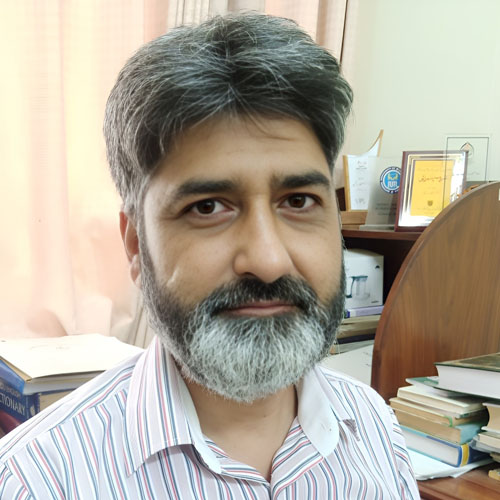
Safdar Rashid
Dr Muhammad Safdar Rashid is an Assistant Professor at Allama Iqbal Open University (AIOU) in Islamabad, Pakistan. He holds a PhD in Urdu from the Federal Urdu University, Islamabad Campus, and completed his postdoctoral studies at Heidelberg University in Germany. Dr Rashid has served as a language developer at the National Language Authority in Islamabad. His scholarly work primarily focuses on the Urdu language and modern criticism. Additionally, he is recognized as a translator. His book, ‘Shair, Shairyat aur Fiction,’ was awarded the KLF 2021 Best Prose Work.
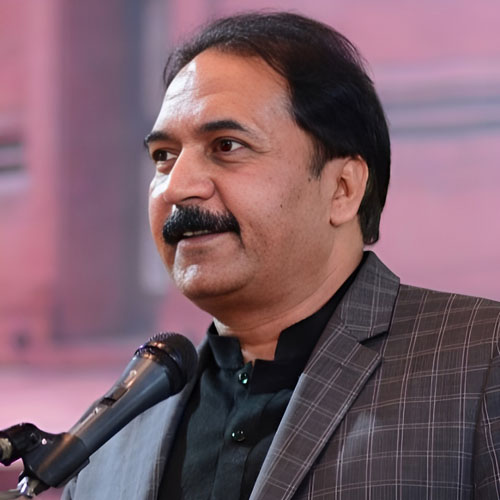
Safeer Awan
Professor Muhammad Safeer Awan, Ph.D. in English Literature and Postcolonial ‘Englishes’, brings nearly 27 years of extensive experience in teaching, research, teacher training, and curriculum development. Since 2016, he has held the positions of Dean of the Faculty of Arts and Humanities and Dean of the Faculty of Languages at the National University of Modern Languages (NUML). Currently, he serves as the Pro-Rector Academics at NUML.
Previously, Professor Awan has been affiliated with Quaid-i-Azam University, Islamabad, and the International Islamic University, Islamabad. He has contributed significantly to the Higher Education Commission (HEC) Pakistan, including chairing the National Curriculum Revision Committee (NCRC) for English.
In 2021, the Pakistan Academy of Letters (PAL) published his translation of Mustansar Hussain Tarar’s acclaimed Urdu novel Bahao as Sorrows of Sarasvati. His book Tarar’s Fragile Times was recently released by Sang-e-Meel Publications, Lahore. Professor Awan has managed numerous projects in Pakistan in collaboration with the United States Educational Foundation in Pakistan (USEFP) and the Regional English Language Office (RELO) at the US Embassy. He is the Project Director of the NUML-EW! Countrywide Management Program.
His translation of Kishwar Naheed’s autobiography ‘The Second Story of a Bad Woman’ is forthcoming from Sang-e-Meel Publications. Additionally, he has translated ‘165 Days: Prisoner of the Taliban’ into Urdu and is currently engaged in several translation projects in the short story genre.
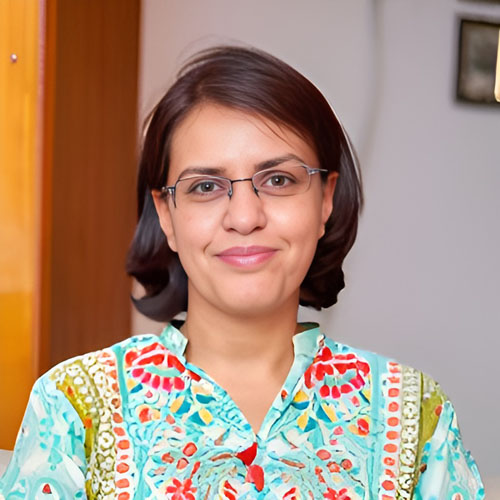
Safiya Aftab
Safiya Aftab is a Development Economist and Policy Analyst with a rich background in consulting and research. She has degrees in Economics and Public Administration. She is the Executive Director of Verso Consulting, leading projects on economic development, governance, social protection, and human rights.
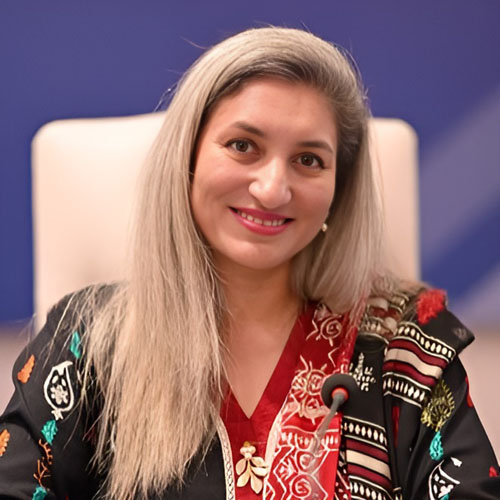
Salma Malik
Salma Malik holds a PhD in International Relations and serves as an Associate Professor at the Department of Defence and Strategic Studies at Quaid-i-Azam University (QAU) in Islamabad, Pakistan. Additionally, she oversees the External Linkages directorate for the university. Her expertise lies in Conflict and Security Studies, as well as South Asian Affairs. Dr Malik is an alumna of Uppsala University, Sweden, and the Asia Pacific Center for Strategic Studies (APCSS) in Hawaii. She actively participates in various forums, including the Regional Center for Strategic Studies, Consortium of South Asian Think Tanks, Social Sciences Research Council, WISCOMP, and WDN-USA.
Before joining QAU, she worked as a Research Officer at the Institute of Strategic Studies in Islamabad, Pakistan, from June 1996 to August 1999. Her publications encompass an edited volume titled ‘Pakistan’s Security Problems and Challenges in the Next Decade’ (October 2015), RCSS Policy Studies on ‘Small Arms and the Security Debate in South Asia,’ a co-authored study with USIP on ‘Mapping Conflict Trends in Pakistan,’ as well as articles in research journals, book chapters, and monthly columns.
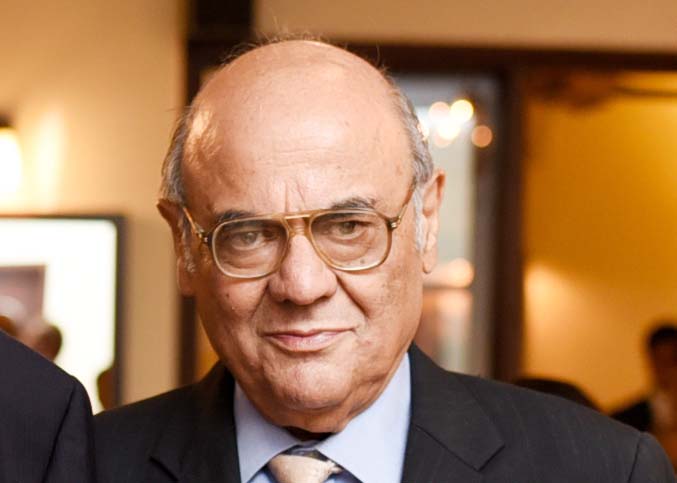
Salman Tarik Kureshi
An English language poet, writer, and columnist. Kureshi’s poems have appeared in anthologies such as ‘Pieces of Eight’; ‘Legacy of the Indus’; ‘The Blue Wind’; ‘Dragonfly in the Sun’; ‘An Anthology’; ‘Journal of Postcolonial Writing’; and a solo volume ‘Landscapes of the Mind’. Some of his poems and short stories have been published in the annual ‘Pakistan Journal of Literature’. As a columnist, he writes on socio-political topics in the weekly The Friday Times and the dailies Dawn and Daily Times.
Sara Ali
Sara Ali completed her PhD in Postcolonial Literature at the University of Waikato, New Zealand. Her poetry has been published in New Zealand’s literary journals ‘Mayhem and Landfall. Her research has been published in reputed journals such as the ‘Journal of Postcolonial Writing’ and the ‘South Asian Review’. She teaches courses on philosophy, revolutionary poetry, and women’s writing at Quaid-i-Azam University.
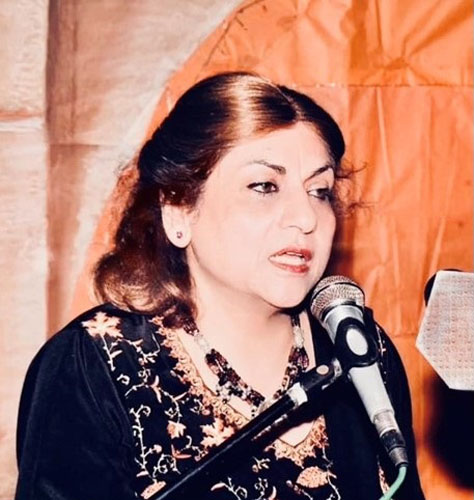
Sarwat Mohiuddin
Sarwat Mohiuddin, a poet, translator, painter, and prose writer in Punjabi, English, and Urdu languages, was born in Lahore, Pakistan. She holds a master’s degree in Punjabi literature from the University of the Punjab. Author of nine books, including poetry, travelogues, translations, and children’s stories, Sarwat has to her credit numerous papers on the life and works of great Sufi poets of Punjab, the portrayal of women in classical literature, the legends of Punjab, the relevance of folk songs in society, contemporary Punjabi poetry, Punjabi culture, and folk traditions. She is a visiting lecturer at various national and international institutes and universities. Sarwat has also represented Pakistan at numerous conferences and seminars both nationally and internationally and has been honoured with several awards and distinctions. She is a member of the Pakistan Punjabi Literary Board, Vice President of the Pak-Hungarian Friendship Association, Book Ambassador of the National Book Foundation, and a former Executive Chairperson of the Literary group of ASG (Asian Study Group of Islamabad).
Sayed Wiqar Ali Shah
Professor (Dr.) Sayed Wiqar Ali Shah, an eminent historian, is Professor Emeritus in the Faculty of Social Sciences at Quaid-i-Azam University, Islamabad. He is a former Dean of the Faculty of Social Sciences and Chairperson of the Department of History at the same university. Born on January 10, 1961, he earned his Master’s and M.Phil. degrees from Peshawar University with distinction, followed by a D.Phil. from the University of Oxford (UK). He is a double Gold Medallist and completed his Ph.D. on frontier politics, focusing on the last ten years before the Partition of India. His expertise includes Modern Afghanistan, Pashto language and literature, political parties and leadership, gender studies, and the erstwhile tribal areas of Pakistan.
Professor Shah served Quaid-i-Azam University for over thirty years (February 1, 1990 – January 9, 2021) in various capacities, including Acting Vice Chancellor, Senior Dean, Member of the Syndicate, Dean of the Faculty of Social Sciences, Chairperson of the Department of History (two tenures), Provost of Boys’ Hostels, Chairman of the Admission Committee, Chairman of the Affiliation Committee, Chairperson of the Harassment Committee, and Director of the Area Study Centre. He supervised twenty-three Ph.D. dissertations and sixty-nine M.Phil. theses.
Professor Wiqar Ali Shah has published extensively on frontier politics, Khushal Khan Khattak, Abdul Ghaffar Khan, the Khudai Khidmatgars, women and politics in the Frontier Province, the Muslim League in the North-West Frontier Province, and the Freedom Movement. To date, he has published over thirty-five research articles in both international and national journals. He is the author of fifteen books, including the popular Ethnicity, Islam and Nationalism: Muslim Politics in the North-West Frontier Province, 1937–1947 (Oxford, 1999, 2000, 2015). His latest book, a political biography of Abdul Ghani Khan, published in January 2021, was awarded the Best Pashto Book of the Year by the Academy of Letters, Islamabad, the Abasin Arts Council, Peshawar, and the 11th UBL Awards.
Professor Wiqar Ali Shah has received one of Germany’s most prestigious fellowships, the Alexander von Humboldt Fellowship. In this capacity, he has visited and stayed at the University of Heidelberg more than ten times and served as the Allama Iqbal Professor there from 2009 to 2014.

Shafqat Hussain Naghmi
Shafqat Hussain Naghmi is a distinguished leader with over 31 years of experience in public sector development, policy formulation, and strategic management. He holds a Postgraduate Diploma in Executive Leadership Development from Harvard University, an MBA from the University of California, Berkeley, and has completed specialized courses at Stanford University. His foundational education includes a Master’s degree in International Relations from Quaid-i-Azam University, Islamabad.
Naghmi retired as Secretary of the Ministry of Industries & Production. His previous roles included Secretary positions in various divisions such as Agriculture, Capital Administration and Development, National Food Security, and the Board of Investment. He also served as the Chief Operating Officer of the Pakistan Cricket Board. Naghmi has taught Corporate Finance at IBA Karachi, the Pakistan Institute of Development Economics, Islamabad, and Quaid-i-Azam University.
Naghmi’s first English novel, ‘Chain of Being’, was published in the UK under the pseudonym Khan Shafqat. Saat Janam is his first Urdu novel, blending emotional depth with political satire. His second English novel, ‘The Sins Left Behind’, is currently being considered for publication. He is also working on his autobiography and a new Urdu novel titled ‘Visa’.
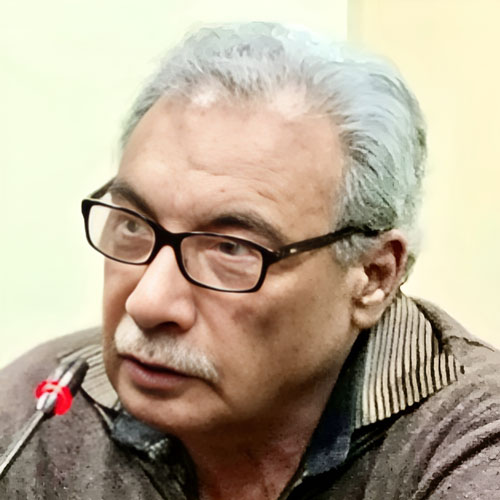
Shahid Masud
Shahid Masud holds a Master’s degree in English Literature and has had a distinguished career in the field of media and education. During his time at Gordon College, Rawalpindi, he served as the President of the Students’ Union from 1971 to 1972.
Masud’s professional journey began at Pakistan Television, where he worked as a Program Producer and eventually retired as Controller. His expertise in film and TV production led him to share his knowledge as a Visiting Faculty member at various universities for sixteen years.
In addition to his contributions to media and education, Shahid Masud is also a published poet. His book of Urdu poetry, titled ‘Waqtan fa Waqtan’ was released in 2023. He was mentored by Dr Tauseef Tabassam, a renowned teacher of Urdu and poetry, whom he had known since 1966. Aftab Iqbal Shamim, a senior friend since the early 1970s, has also been a significant influence in his life.
Shahid Masud’s multifaceted career and literary contributions have made him a respected figure in both the media and literary communities.
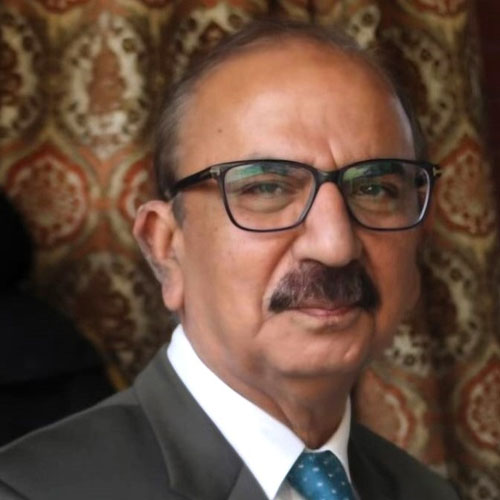
Shahid Siddiqui
Shahid Siddiqui is a renowned educationist, linguist, teacher, researcher, academic administrator, and prolific writer. He obtained his PhD in Applied Linguistics from the University of Toronto, Canada, M.Ed. TESOL from the University of Manchester, UK, and Postdoc research at Oxford University. He has worked in academic and administrative positions at some prestigious universities such as AKU, LUMS, GIKI, and NUML to name a few. He was Vice Chancellor of AIOU from 2014 to 2018. He is currently working as Dean, Faculty of Social Sciences, Media Studies, Art and Design at Lahore School of Economics. His books include ‘Rethinking Education in Pakistan Perception, Practices, and Possibilities’; ‘Education, Inequalities, and Freedom: A Sociopolitical Critique’; ‘Language, Gender, and Power: The Politics of Representation and Hegemony in South Asia’; ‘Education Policies in Pakistan: Politics, Projections, and Practices’; ‘Aadhay Adhooray Khwab’ (Urdu novel); ‘Zair-e-Aasmaan’ (Urdu); ‘Mausam e Khush Rang’ (Urdu); ‘Potohar: Khitta-e-Dilruba’ (Urdu); ‘Ad Pora Khawab’ (Sindhi); ‘Neem Ghari Khaboona’ (Pashto); ‘Pakistan, Education and 21st Century’; ‘Toronto, Dubai, and Manchester’ (Travel Stories) (Urdu).
Shahid Soroya
As the Director General of the Pakistan Institute of Education (PIE), Dr Shahid Soroya leads and manages the national education and research policy and programs for the Ministry of Federal Education and Professional Training. He is passionate about enhancing the quality, equity, and relevance of education in Pakistan, leveraging his expertise in education and research to develop and implement innovative, evidence-based initiatives, strategies, and standards.
With over 20 years of experience in the education and research sector, he has a proven track record of academic leadership, governance, and administration. Prior to joining PIE in April 2023, he held senior positions at Blackstone School of Law & Business and Lahore Leads University, where he successfully led and supported various academic and institutional initiatives. He also served as the Director General of the Punjab Higher Education Commission, where he developed and headed programs such as the Community College Program, Indigenous Post Doctoral Program, and Split PhD Program.
An internationally recognized research scholar, he holds a PhD in South Asian Studies, an LLB, and a Master’s degree in Library and Information Science. His research primarily focuses on academic integrity, library anxiety, and information needs and seeking behaviour, and he has published multiple papers, receiving numerous awards and honours in these fields.

Shahzad Sharjeel
A native of Tharparkar, Sindh, Shahzad Sharjeel grew up in Karachi. He holds a postgraduate degree in International Relations from the University of Karachi and has also pursued studies at the Fletcher School of Law and Diplomacy, Tufts University, Boston. Sharjeel is actively involved in teaching subjects such as International Political Economy, Social Policy, and Development Communication at both public and private universities. He has also taught at his alma mater, the University of Karachi. Beginning his career in journalism, Sharjeel worked for two of Pakistan’s most widely read English-language newspapers. He is a regular contributor to ‘Dawn’, Pakistan’s leading newspaper. Transitioning to the field of development, he has dedicated over two decades to this sector. His work has taken him to various locations, including Karachi, Islamabad, the USA, Nigeria, and Japan, where he engaged in development-related and diplomatic fields. In terms of creative expression, Sharjeel’s preferred genres are ghazal in poetry and satire in prose. He published his collection of Urdu poetry titled ‘Kiyun’ in 2008. His latest book, ‘Rindana,’ is a collection of satire and humorous essays in Urdu.
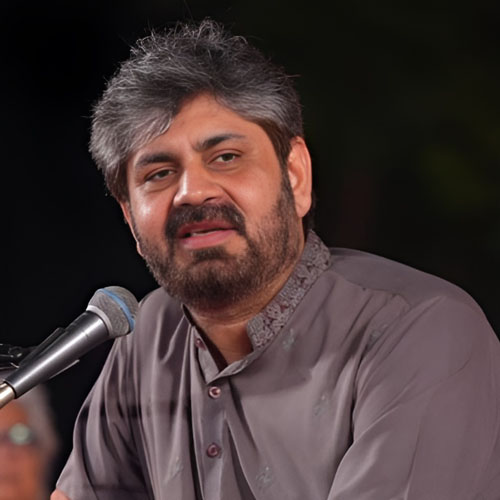
Shakeel Jazib
Shakeel Jazib is a renowned Urdu poet and the author of three poetry collections. He began his poetic journey in the 1990s and soon established his identity in literary circles. He was born in the Chiniot district of Punjab. He obtained an MA degree in Urdu Literature from Punjab University. After passing the competitive examination for employment, he joined the Pakistan Civil Services.
He has participated in many national and international poetry events, including those in the USA, England, the Netherlands, the UAE, India, Qatar, and Bahrain. He has been honoured with numerous awards and accolades from prominent literary organizations in these countries. He is also the honorary editor of the quarterly literary magazine Dabistan, published from Lahore. Additionally, he has hosted many literary programs on television.
Although Shakeel Jazib has experimented with various forms of poetry, his favourite genre remains the ghazal. His poetry collections ‘Har Naqsh Adhoora Hai’ (1997), ‘Jab Saans Mein Girhain Padti Hain’ (2003), and ‘Nami Danam’ (2020) have been well-received by literary enthusiasts. His writings are regularly featured in newspapers, magazines, and journals published in the Indian subcontinent and other countries. He has blended the Urdu poetic tradition with modern themes and fresh emotions.
According to the renowned intellectual and poet Iftikhar Arif, among the poets who have emerged with a distinct creative identity on the Pakistani ghazal scene in the first two decades of the 21st century, Shakeel Jazib stands out the most due to his complete artistic mastery and fresh ideas. He has emerged as a very strong representative of his generation.
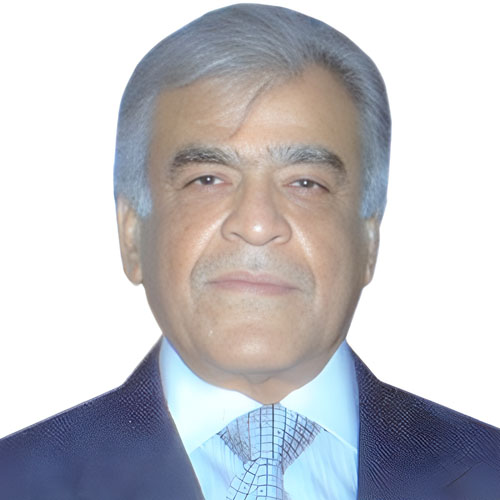
Shamim Ahmad
Shamim Ahmad is a retired civil servant with a distinguished career in the federal government. He holds a Master’s degree in Defence and Strategic Studies from Quaid-i-Azam University, Islamabad, and has also studied at Syracuse University in the US. His interest in Psychology, sparked by fortuitous events, led him to earn a second Master’s degree in the field.
Post-retirement, Ahmad transitioned from writing periodic finance articles to focusing on psychological themes. His work has been featured in various publications, and he has authored several books, including ‘Torment and Creativity: A Psychoanalytic Study of Literature and Literati’ (2013), ‘Zulfikar Ali Bhutto: The Psychodynamics of his Rise and Fall’ (2019), ‘The Equitable Tax’ (2022), and ‘My Friend Mairaj – An Intimate Biography’ (2024). His contributions continue to enrich the fields of psychology and literature.
Sharif Awan
Sharif Awan is a celebrated Pakistani writer, culture revivalist, and music producer, known for his exceptional contributions to classical, folk, and world music. As the Founder/Director of the Tehzeeb Foundation of Pakistan, he has recorded and preserved indigenous Pakistani music, produced numerous quality audio and video albums, and published books on Pakistani culture. His notable projects include ‘Indus Raag,’ internationally acknowledged as a premier project on Pakistani music, and ‘Story of Gulsher,’ a tribute to the martyred APS school children, featured in a UNESCO-supported international album on world peace. Awan has garnered international acclaim, winning multiple gold and silver medals at the Global Music Awards (GMAs) and the Independent Music Awards (USA). His work under the Tehzeeb Foundation has consistently received recognition, with projects like ‘Indus Raag – Beyond Borders’ making history as Pakistan’s first entry into the Grammy Awards. His dedication to musical excellence and his ability to bring together artists from diverse backgrounds highlight his influential role in the global music landscape.
Shaza Khan
Shaza Khan studied English Literature and Art in college but began her career in telecom and database administration. She later embraced education, becoming a Montessori teacher for children aged 2-12 in Pakistan and Canada. After returning to Pakistan, she worked as a teacher trainer for six years. Major life changes led her to nature writing, poetry, and a deeper connection with the natural world, despite barriers for women in Pakistan. Shaza, a Montessori educator and mother, shares book reviews and literary moods on Instagram as Migrainemuse and is launching a poetry blog and community space titled ‘Soul Studio’.
Shoaiba Mansoor
Dr Shoaiba Mansoor is the Deputy Education Advisor at the Ministry of Federal Education and Professional Training and Deputy Secretary for International Coordination. With 16 years of experience, she oversees academic programs in Islamabad’s public schools and collaborates with key development partners. Holding a PhD in Education, she focuses on curriculum development and 21st-century skills. Dr. Mansoor advances Sustainable Development Goal 4 (SDG-4), addresses Out of School Children (OOSC), and promotes greening education initiatives. She also coordinates educational conferences and represents Pakistan at international conferences and workshops.
Sikander Ajam
Sikander Ajam is a distinguished Architect and Town Planner with a career marked by innovation and excellence. Educated at prestigious institutions in Pakistan, Wales, Chicago, and Harvard University, he has developed a multifaceted skill set. He founded a leading architecture and industrial design school at NUST Islamabad, significantly impacting architectural education in Pakistan. His expertise in designing educational and healthcare facilities is evident in his exceptional portfolio. Additionally, as an advisor on the masterplan committee, he has influenced the sustainable urban development of Islamabad, shaping the city’s architectural landscape.
Sonia Irum
Dr Sonia Irum is an Assistant Professor in the Department of English at the International Islamic University, Islamabad. She earned her PhD from Royal Holloway, University of London, specializing in Literature and Environment. Her research interests include environmental humanities, contemporary ecofiction, cultural studies and South Asian fiction in English. Dr Irum has published on topics such as consumerism, marginalisation and feminist studies. She is also engaged in translation of literary works into Urdu and English. In addition to her academic pursuits, Dr Irum is actively involved in various professional activities. She has been the Coordinator of the Critical Thinking Forum and has organized numerous international conferences advancing dialogue on critical issues. She has also been editor Gentle Visitations, an online literary magazine. She is also invited as an expert on communication skills in various institutions. She is a member of several professional associations, including the Association for the Study of Literature and Environment (ASLE-UKI) and the International Comparative Literature Association (ICLA).
Sophia Bano
Sophia Bano is a poet from Karachi, Pakistan. She holds a B.A. in English and works as an editor.
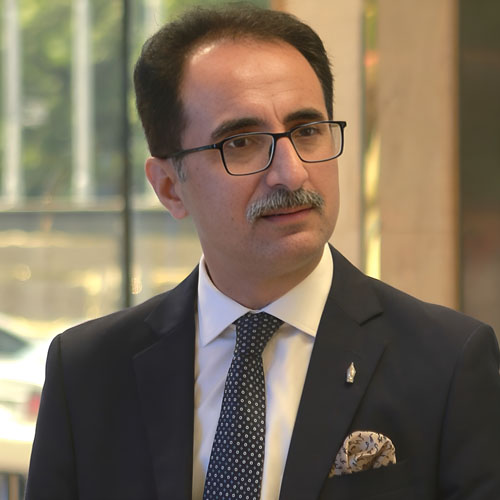
Sultan Nasir
Sultan Nasir is a poet, author, civil servant, and the Director General of the Pakistan Academy of Letters. In 2020, he published a collection of poems titled ‘Kahin Nahin.’ Additionally, he has authored three biographies: ‘Shaheed-e-Ishq’ in 2013, ‘Seerat-e-Noor’ in 2016, and ‘Khaza’in-e-Faqr’ in 2021, which received the Abasin Literary Award for research/translation. These biographies primarily delve into topics such as Sufi thought, history, culture, religion, and post-colonialism. His essays on literary criticism have been published in several journals. In 2017, he compiled ‘Kulliyat-e-Syed Mubarik Shah.’ Furthermore, he has written a dissertation on Joseph Conrad’s novel ‘Heart of Darkness.’ However, he considers his Urdu poems to be the most genuine reflection of his essence. Sultan Nasir, a direct descendant of the Sufi poet Sultan Bahoo, holds a profound interest in the poetic traditions of Persian, Punjabi, Saraiki, Urdu, and English. He is also an alumnus of the Humphrey program at Syracuse University, New York, USA.

Syed Talat Hussain
Syed Talat Hussain is a distinguished journalist and YouTuber, renowned for his incisive analysis and significant contributions to Pakistani media. He holds a master’s degree from Quaid-i-Azam University, Islamabad, and began his journalism career in the 1990s. Over the years, he has become a respected figure in the industry.
Talat has held several key positions, including Executive Director of News and Current Affairs at AAJ TV. He has also worked with major networks such as PTV, Dawn News, and Geo News. Currently, he hosts a prime-time current affairs talk show on Samaa TV titled ‘Red Line with Talat.’
In addition to his television career, Talat is an active YouTuber, sharing his insights on political and social issues. His YouTube channel has garnered a significant following, reflecting his influence and reach in digital media. He is also known for his contributions to print media, having written for publications like Newsline, Daily Dawn, and Daily Times.
Syeda Shahida Shah Kakakhel
Syeda Shahida Shah Kakakhel, a master in Human Development Studies and an M.Phil. research scholar in Central Asian, Chinese, Russian, and Afghan studies, is a prominent Pashtun feminist and activist in KP/FATA. She advocates for women’s rights, minority rights, and peace. From September 2012 to January 2017, she led ‘Takrah Qabailee Khwenday’ (Brave Tribal Sisters), a forum for tribal women of FATA. Ms. Shah has worked extensively for minority rights in KP/FATA, engaging in legislative and advocacy efforts with parliamentarians, politicians, media, and civil society. As a peace activist, she has participated in numerous protests and rallies against injustices and terrorism. At the request of APS martyrs’ mothers, she mobilized civil society to demand justice and arranged a delegation to meet President Asif Ali Zardari in May 2017. She also led delegations of tribal women to meet key political figures to protest against FCR and support FATA reforms. Ms. Shah is a member of various local, national, and South Asian networks, advocating for women’s empowerment for a prosperous Pakistan.
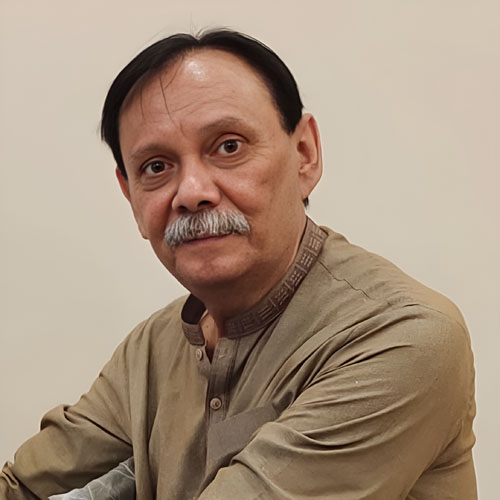
Tariq Naeem
Tariq Naeem completed his primary education at Government High School Makhdoom Aali in Multan, earned a BA from Government Sadiq Egerton College in Bahawalpur, and an MA in Urdu Literature from Punjab University in Lahore. During college, he served as an assistant editor for the college magazine.
He moved to Islamabad, where he worked as a senior auditor at the Accountant General Pakistan Revenues and as a producer at Radio Pakistan. For fifteen years, he served as the Public Relations Officer for poet Ahmed Faraz at the National Book Foundation and edited its magazine, Kitab.
Tariq has authored seven books, including ‘Surkh Gulabon ke Mausam Mein’, ‘Diye Mein Jalti Raat’, and ‘Ankh Se Aasman Jata Hai’. He was the secretary of Halqa-e-Arbab-e-Zauq, Islamabad (1985-86), and was honoured as the best young writer by the Pakistan Youth League in 1985. He received the Perveen Shakir Aks-e-Khushboo Award in 2000 for ‘Diye Mein Jalti Raat’.
He is the editor of the quarterly ‘Akkaas’ and has contributed to Jang and Nawa-i-Waqt. Currently, he is the Director of Media at Aiwan-e-Sir Syed and the editor of its journal ‘Ilm-o-Amal’.
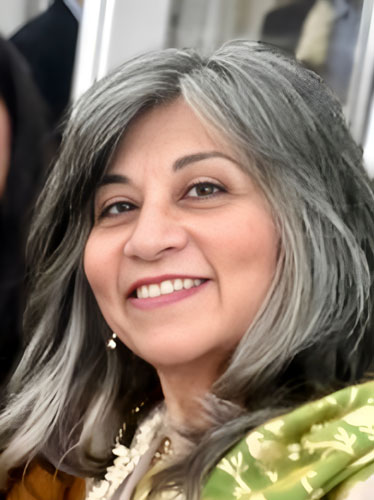
Umber Khairi
Umber Khairi is a columnist, writer, and editor. She has worked as a journalist in Pakistan and the UK since the 1980s and was a producer and radio broadcaster at the BBC World Service in London for almost two decades. She is a co-founder of the independent, journalist-owned magazine Newsline, established under the leadership of the late Razia Bhatti in 1989. Khairi now runs the Razia Bhatti Memorial Lecture Series in partnership with the IBA’s Centre for Excellence in Journalism. Her weekly column, UK Calling, has featured in The News on Sunday since 1998, and she occasionally contributes to other publications, including Dawn, Naya Daur, and The Circuit. Her novel, ‘Akbar in Wonderland’, is set in 1990s Pakistan, in a post-martial law landscape. Umber Khairi is a graduate of Princeton University, where she studied Comparative Literature and Near Eastern Studies.
Usman Mukhtar
Usman Mukhtar is a director, cinematographer, and actor. He began his career as a filmmaker in 2006 and as a theatre actor in 2007. He directed music videos and short films such as ‘Black Coffee’, ‘Aasia’, and ‘Aashiqui’. He got his break as a film actor with a role in the 2016 film ‘Janaan’. Subsequently, he contributed as both an actor and cinematographer in the 2018 film ‘Parchi’. In 2019, Mukhtar made his television acting debut in the HumTV drama ‘Anaa’. In 2020, he hosted the HumStyle Awards and played significant roles in popular dramas like ‘Sabaat’, ‘Hum Kahan Kay Sachay Thay’, and ‘Sinf-e-Aahan’. He has also starred in short films such as ‘Bench’ and ‘Ek To Tum Aurtein’. In 2013 and 2014, he was nominated for two Hum Awards for Best Music Video. In April 2022, Mukhtar ventured into production and launched Eastern Terrestrial Studios in collaboration with actor Meiraj Haq. The production house is dedicated to discovering and nurturing new talents. He has to his credit two critically acclaimed, multiple award-winning short films, ‘Bench’ and ‘Gulabo Rani’. Recently, he starred in Pakistan’s first Sci-fi film ‘Umro Ayyar: A New Beginning’ and the crime thriller ‘Chikkar’. Additionally, Mukhtar is currently winning hearts as Dr Numair in the drama ‘Jafaa’.
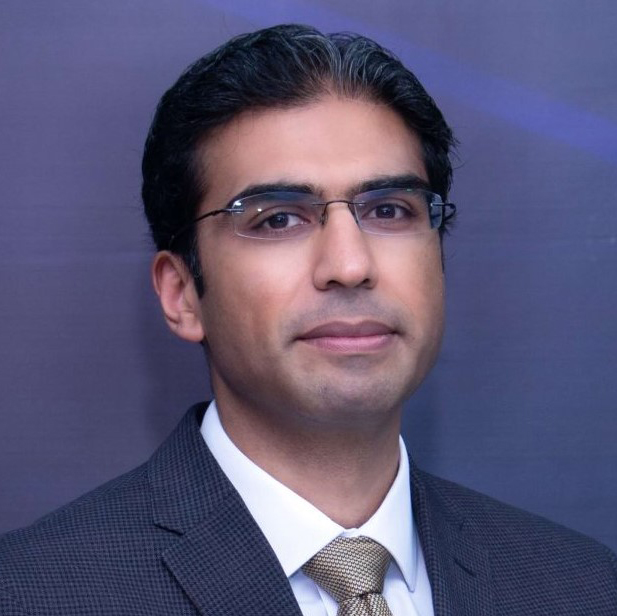
Vaqar Ahmed
Dr Vaqar Ahmed is a distinguished economist and policy expert with a Ph.D. and extensive experience in both public and private sectors. Currently serving as the Team Lead for the Aawaz Programme at Oxford Policy Management, he has led significant initiatives for organizations like the World Bank, UNDP, and ADB. Dr Ahmed is also an advisory board member for The Economist and a Research Fellow with the Partnership for Economic Policy (PEP) Network.
His academic contributions are notable, with over 100 peer-reviewed articles and influential books, including Pakistan’s Agenda for Economic Reforms. He has held visiting faculty positions at prestigious institutions such as the University of Nottingham and Quaid-i-Azam University. His expertise has been recognized through awards like the 2015 Young Leaders Fellowship from the French Ministry of Foreign Affairs.
In government, Dr Ahmed has played key roles in the Ministry of Finance and the Planning Commission, shaping economic policy across various provinces in Pakistan. He actively participates in national task forces, focusing on public finance, tax reforms, and enhancing private sector competitiveness. His insights on economic issues are frequently featured in major media outlets, including the BBC and Bloomberg.

Wajahat Malik
Wajahat Malik is a filmmaker, television presenter, public speaking instructor, and published writer. He co-founded and chairs the Pakistan International Mountain Film Festival. He has produced and directed numerous adventure and travel films, documentaries, fiction films, and music videos for Pakistan Television and other networks, including National Geographic Channel. He has taught public speaking, communication skills, advertising, and Business English at Hamdard University Islamabad and conducted workshops at various universities, including Lehman College, City University of New York. His poetry book, ‘Charsi Nama and Other Poems,’ was published in 2022, and his work has appeared in various anthologies. The Pakistan International Mountain Film Festival, held annually since 2015 in Lahore and Islamabad, is one of Asia’s three renowned mountain film festivals. An avid outdoorsman and environmentalist, Wajahat is a mountain climber, paragliding pilot, white water rafter, and mountain biking enthusiast.
Walid Iqbal
Walid Iqbal served as a member of the Pakistan Senate from 2018 to 2024. He is one of Pakistan’s leading corporate lawyers and has more than two decades of teaching experience in Law and Economics at Harvard, LUMS, Government College University, and Punjab Group of Colleges. He was educated at Aitchison College Lahore, the Wharton School of Business, University of Pennsylvania, Pembroke College, Cambridge, Punjab University, and Harvard Law School. Walid Iqbal belongs to a family of international renown in the fields of intellect, law, public welfare, judicial service, and social activism. He regularly appears in international conferences, debates, and television talk shows. He has several published papers to his credit on a variety of topics, including Pakistan’s nuclear tests and the applicable sanctions regime, Pakistan’s constitutional system, alternative dispute resolution, Islamic law and constitutional structure, Pakistan-Russia relations, and the life and teachings of Allama Muhammad Iqbal.
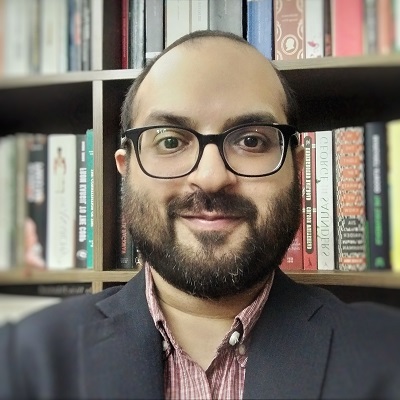
Waqas Naeem
Waqas Naeem is a media development professional based in Islamabad, Pakistan. Over the past nine years, he has worked in various capacities in journalism, academia, and the media support sector. He has previously served as a news reporter for The Express Tribune and as a faculty member at the National University of Sciences and Technology’s mass communication department. Waqas completed his MA in Journalism from the University of Missouri in 2012.
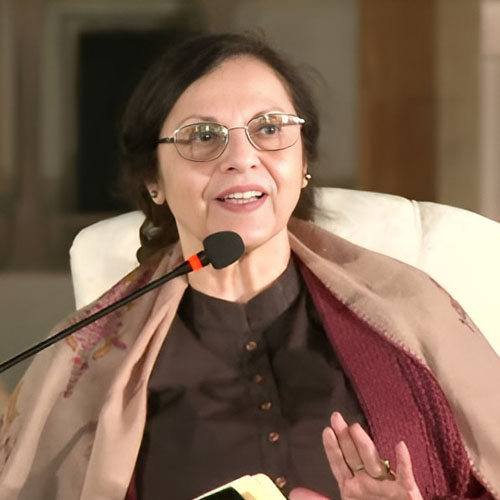
Yasmeen Hameed
Yasmeen Hameed is a celebrated Pakistani Urdu poet, translator, and educator with over three decades of experience in literature and the arts. She served as the Founding Director of the Gurmani Centre for South Asian Languages and Literature at the Lahore University of Management Sciences (LUMS) from 2007 to 2016.
Yasmeen has published five acclaimed books of poetry. Her book, ‘Pakistani Urdu Verse’ (2010), was awarded the UBL/Jang Literary Excellence Award in 2012. She has compiled and edited ‘Daybreak: Writings on Faiz’ (2013) and ‘Naya Urdu Afsana’. Her poems have been published in translation in Granta, 112 Pakistan, and the anthology Modern Poetry of Pakistan. She was guest editor of Pakistani Literature (English), published by the Pakistan Academy of Letters, Islamabad, and has edited seven volumes of the journal, including two volumes of a special issue on women writers from Pakistan. Her book, ‘Junubi Asia ki Muntakhab Nazmein’ (poetry in translation, of sixteen South Asian languages) published in 2022 received three prestigious awards. the Jamil Jalibi Adabi Award, the Muhammad Hasan Askari Award by the Pakistan Academy of Letters and the UBL Award for excellence in literature and the arts. Her recent publication (2023) is a book of literary essays called Eik aur Rukh. She has also been honoured with the Tamgha-i-Imtiaz by the Government of Pakistan and the Fatima Jinnah Medal by the Government of Punjab.
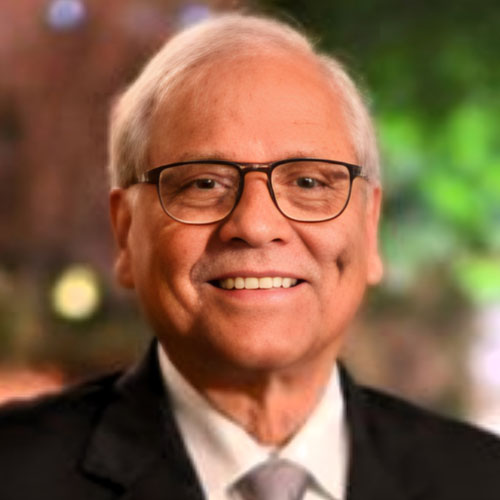
Zahid Hussain
Zahid Hussain is an award-winning journalist and author. A former correspondent for The Times of London and The Wall Street Journal, he has also covered Pakistan and Afghanistan for several other international publications, including the Associated Press, Newsweek, The Economist, and India Today. He is a regular columnist for Dawn. He has published numerous research papers for various international think tanks on subjects related to regional conflicts, terrorism, and geopolitics. Hussain was a Pakistan scholar at the Woodrow Wilson International Center for Scholars, Washington D.C., and a Visiting Fellow at Wolfson College, University of Cambridge, and the Henry Stimson Center, Washington D.C. He has worked as a consultant to the World Bank and the Department for International Development (DFID). He regularly participates in international conferences and seminars. Hussain appears frequently as a commentator on various national and international radio and TV channels, including BBC, CNN, and Al Jazeera. He is the author of ‘Frontline Pakistan: The Struggle with Militant Islam’; ‘The Scorpion’s Tail: ‘The Relentless Rise of Islamic Militants in Pakistan—And How It Threatens America’; No-Win War: The Paradox of US-Pakistan Relations in Afghanistan’s Shadow’; ‘Hybrid Rule in Pakistan’; and ‘Face to Face with Benazir’.
Zain Ul Abidin Khan Alizai
Zain Ul Abidin Khan Alizai is a twenty-three year-old poet from Wah. His poems have been featured in Savant-Garde, The Aleph Review, Counterclock Magazine, Bauda-e-Sabaa, and at the Delhi Poetry Festival, among others. His poems have also been a part of two Indian anthologies, ‘Fledglings’ and ‘Bhor’. He was also the runners-up at the inaugural Pakistan Youth National Poet Laureate and the 2020 Adroit Summer Mentorship Program Alum for Poetry.
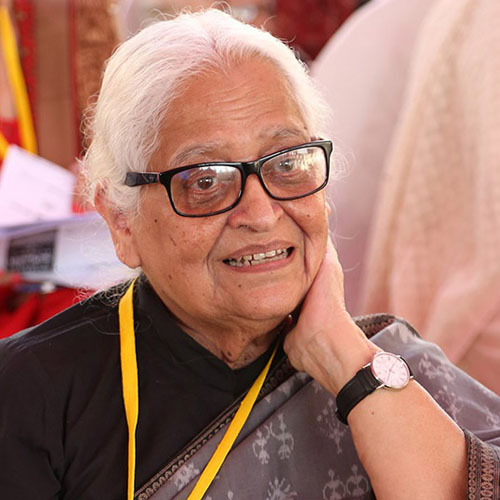
Zehra Nigah
Zehra Nigah is one of the foremost Urdu poets of Pakistan. She was one of two female poets to gain prominence in the 1950s. She was born on 14 May 1937 in Hyderabad, India and migrated to Pakistan with her parents during the partition in 1947. Coming from a well-known literary and intellectual family, she counts Anwar Maqsood and Fatima Suraiya Bajia among her siblings. She has three collections of poetry to her credit and recently an omnibus of her works has been published in Lahore. She has received various awards at home and abroad in recognition of her work. She is also a scriptwriter of popular television serials and films. She received the Pride of Performance Award from the President of Pakistan in 2006.
